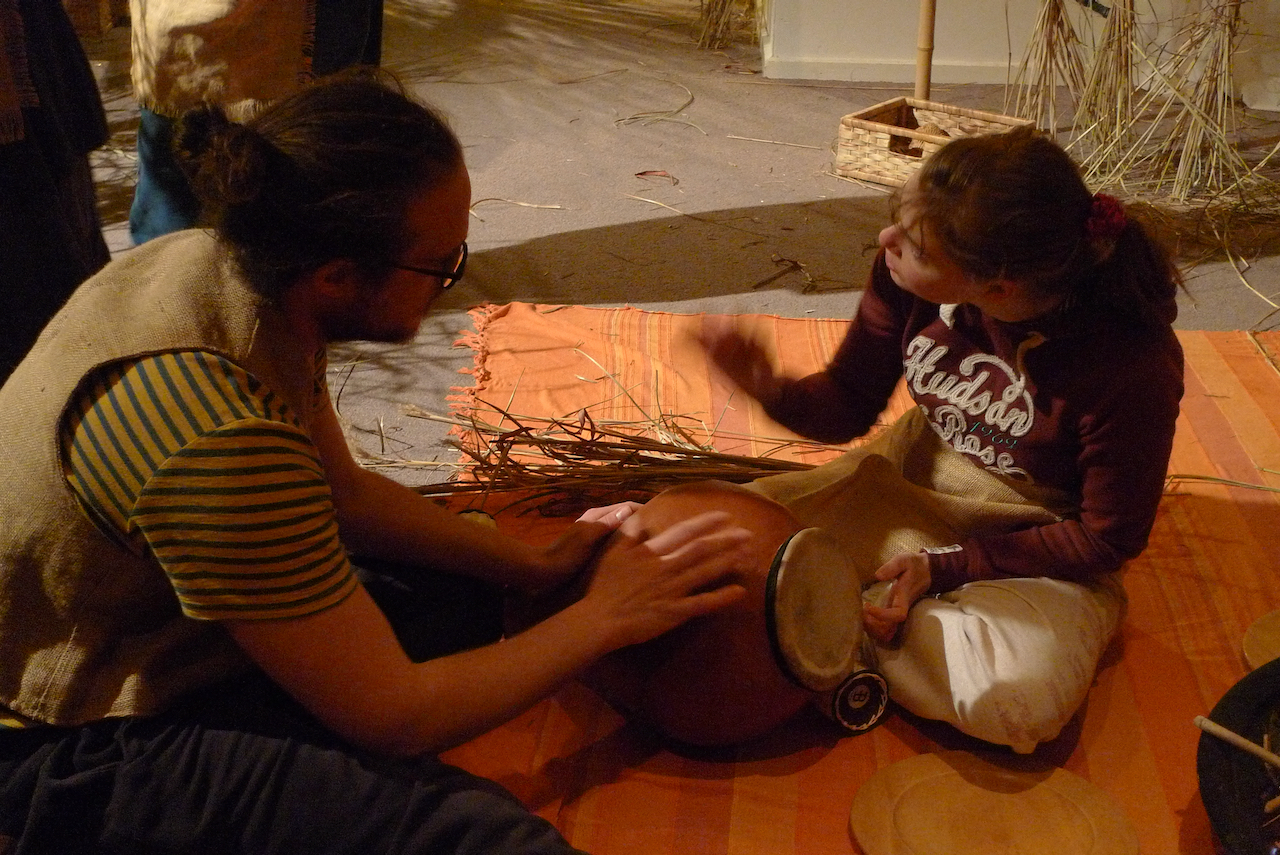Drums
"Rhythm is our universal mother
tongue". G. Roth. It is clear from
working with people of all ages and abilities, that a steady pulse can unite a
whole group in ways that other mediums cannot. Rhythm can be trance like or energy
giving, it can be used as a basis for chanting or inspiring movement and dance.
However, drums come in many shapes and sizes, some more useful than others, so
it is wise to consider the sound you are looking for and the purpose of its
use, for example how it relates to a particular theme - a Pow wow, a woodland scene, Hindu wedding or perhaps
a cyclone.
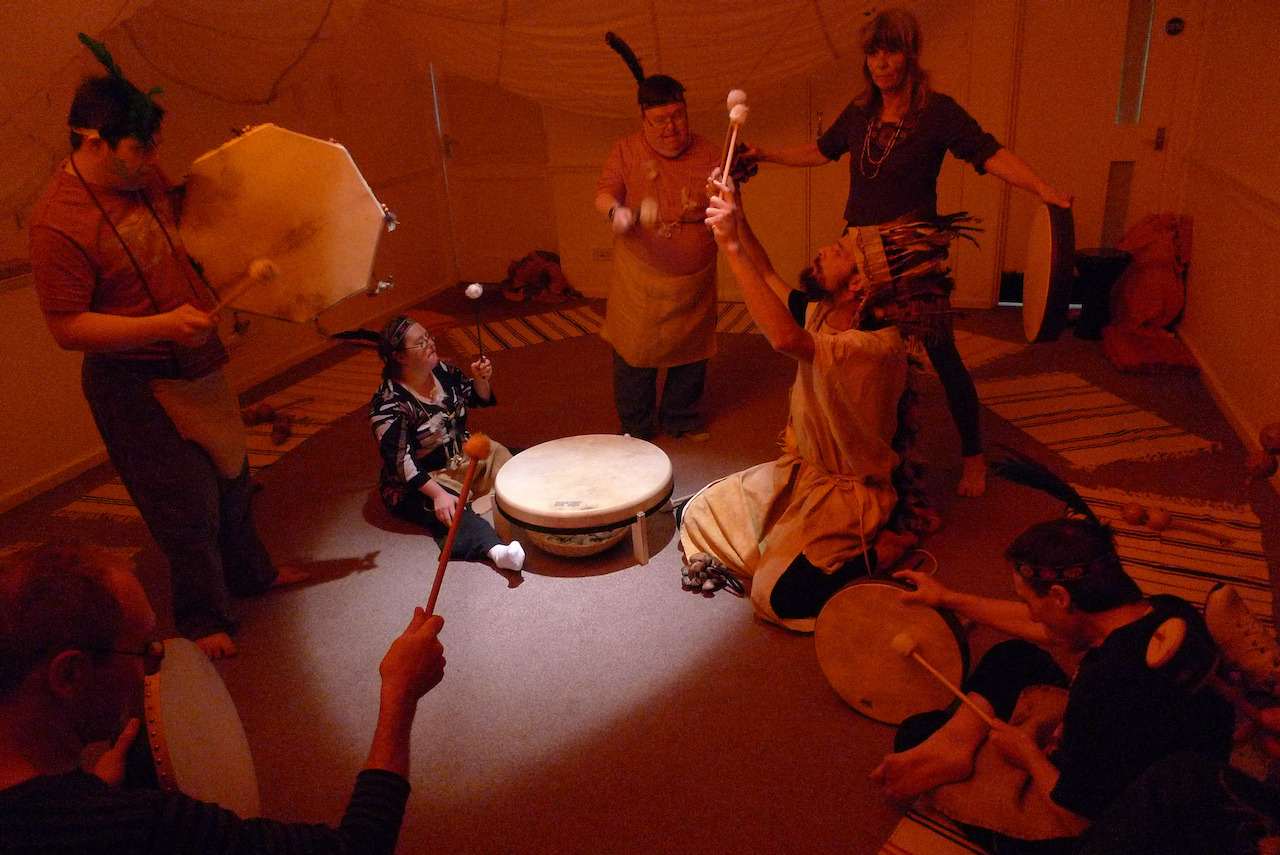
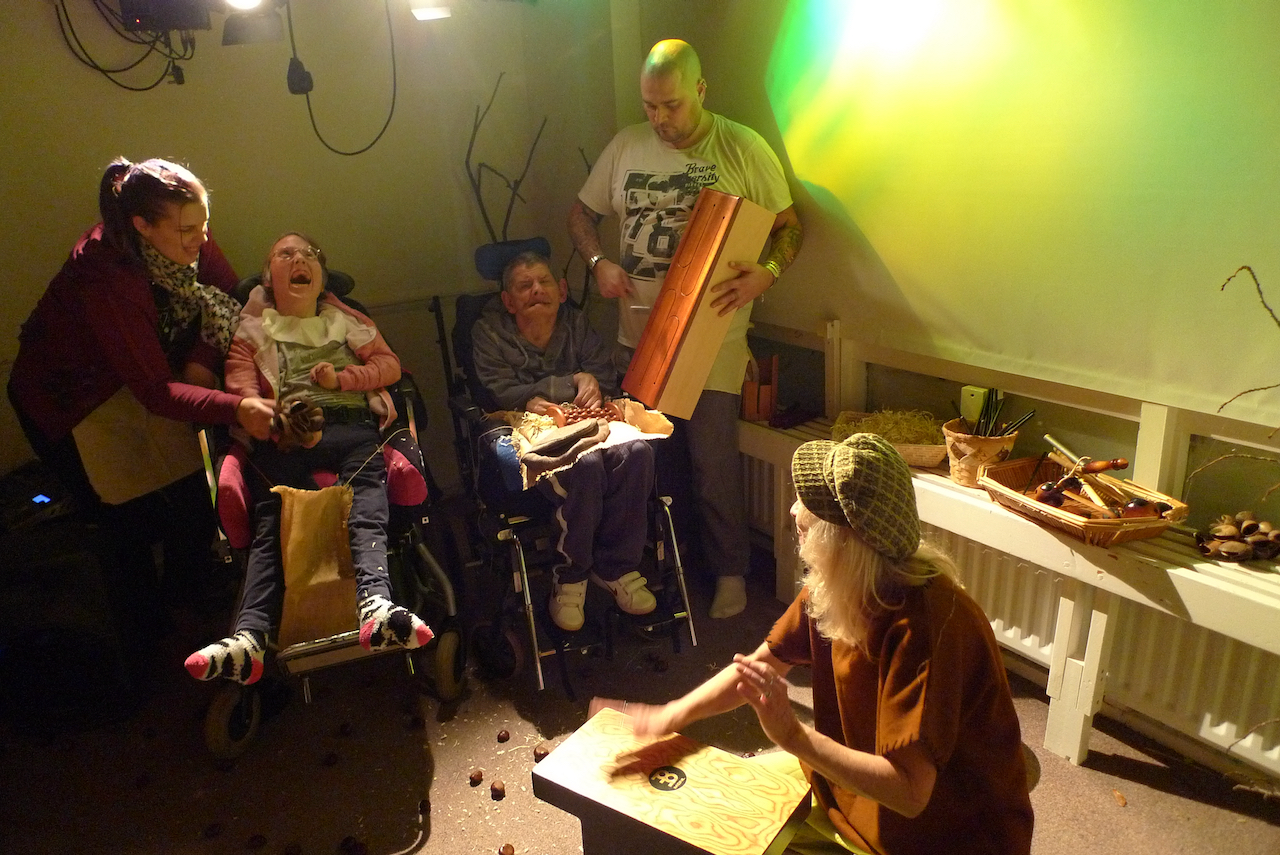
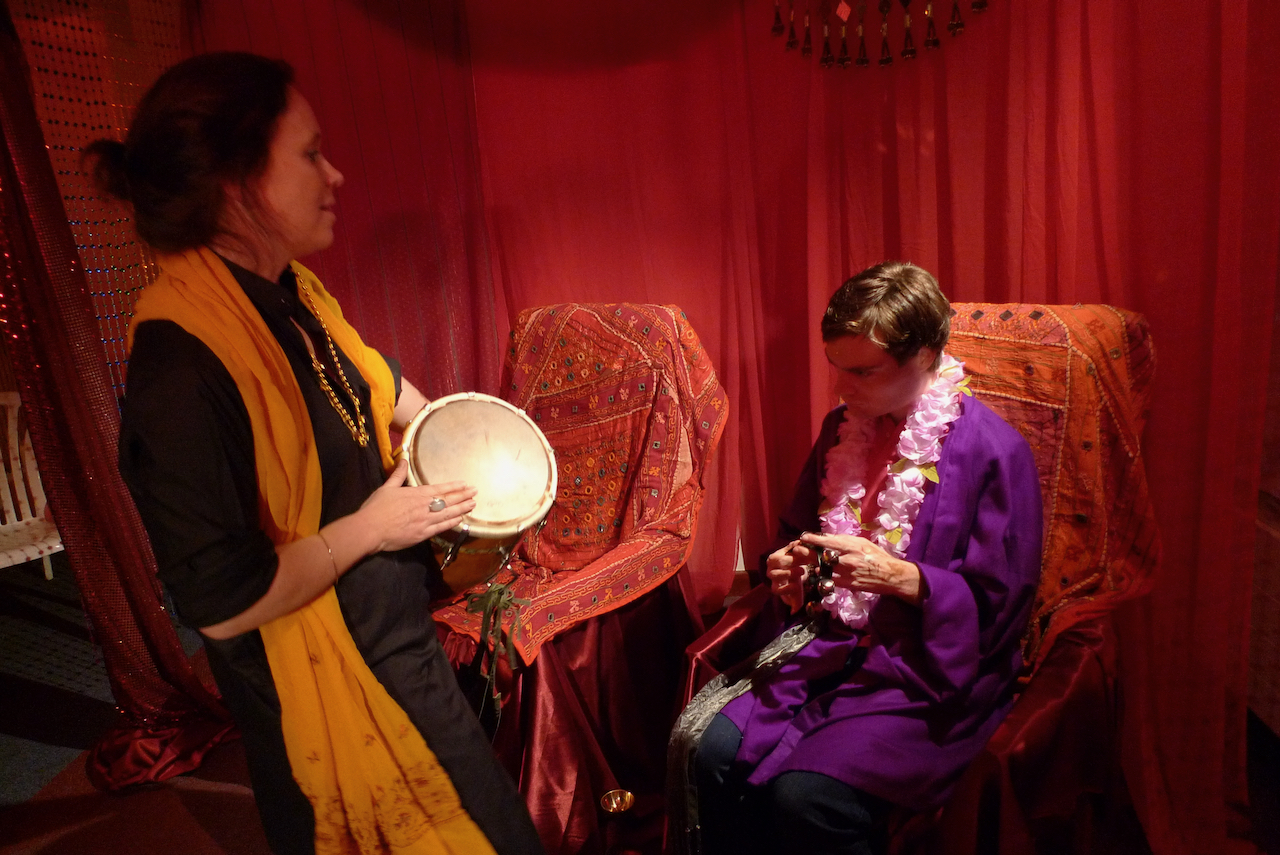
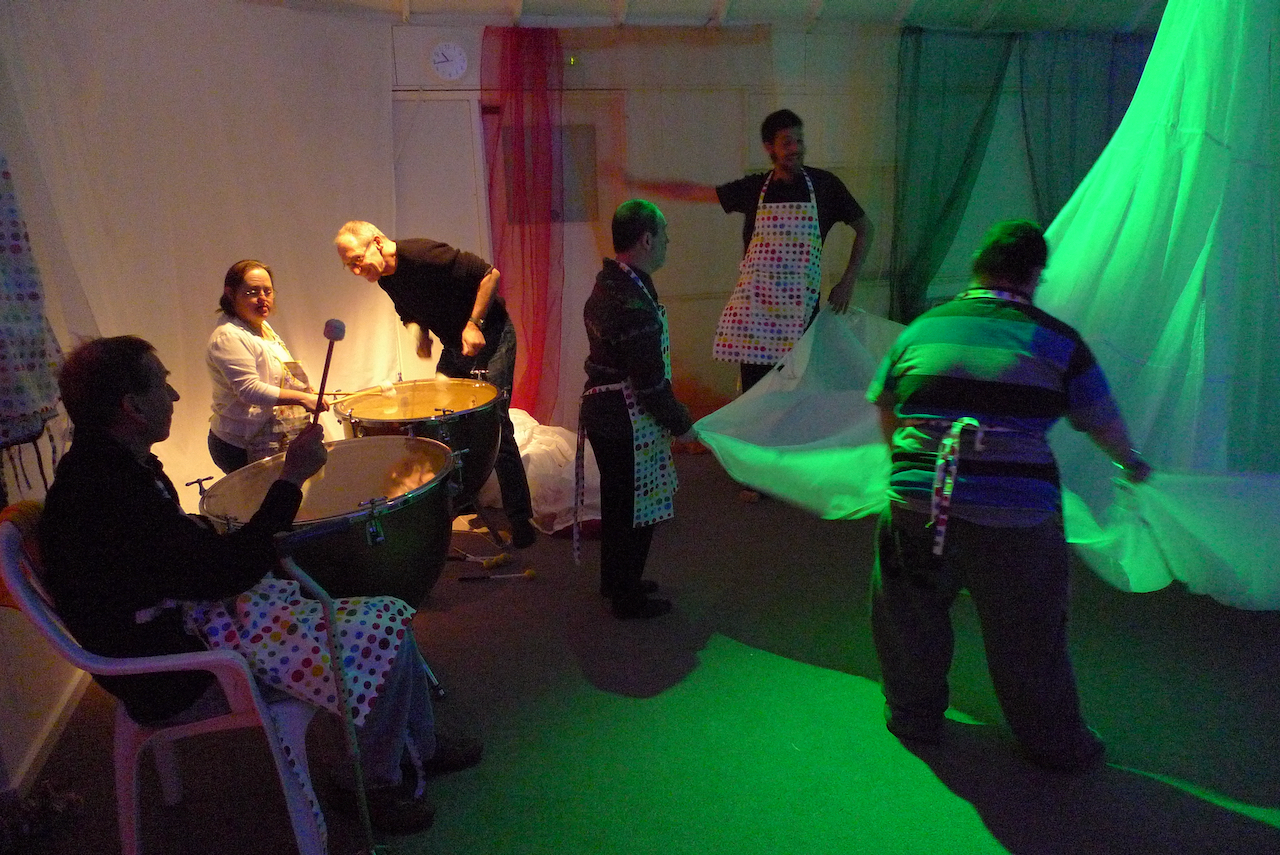
Djembe - one of the most used drums in our kit, it
has a wide head that makes it easily accessible. It can be played with hands,
fingers, feet or beaters and can produce a variety of sounds by playing base or
skin, playing with hands in different positions, scratching with fingers,
playing in the centre or at the edge or even banging on the ground to create a
steady 'thumping' pulse. When inverted people can feel and hear the
sound/vibrations produced.
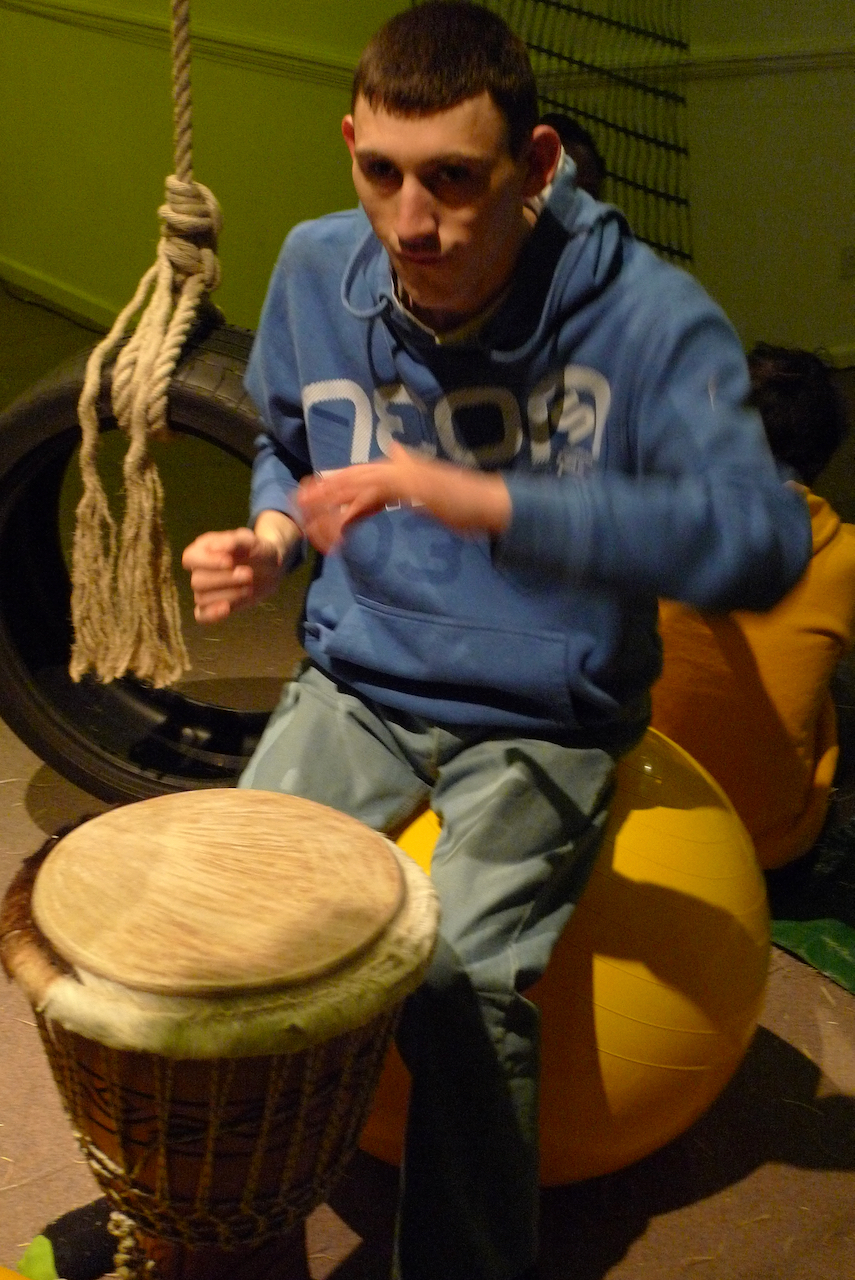
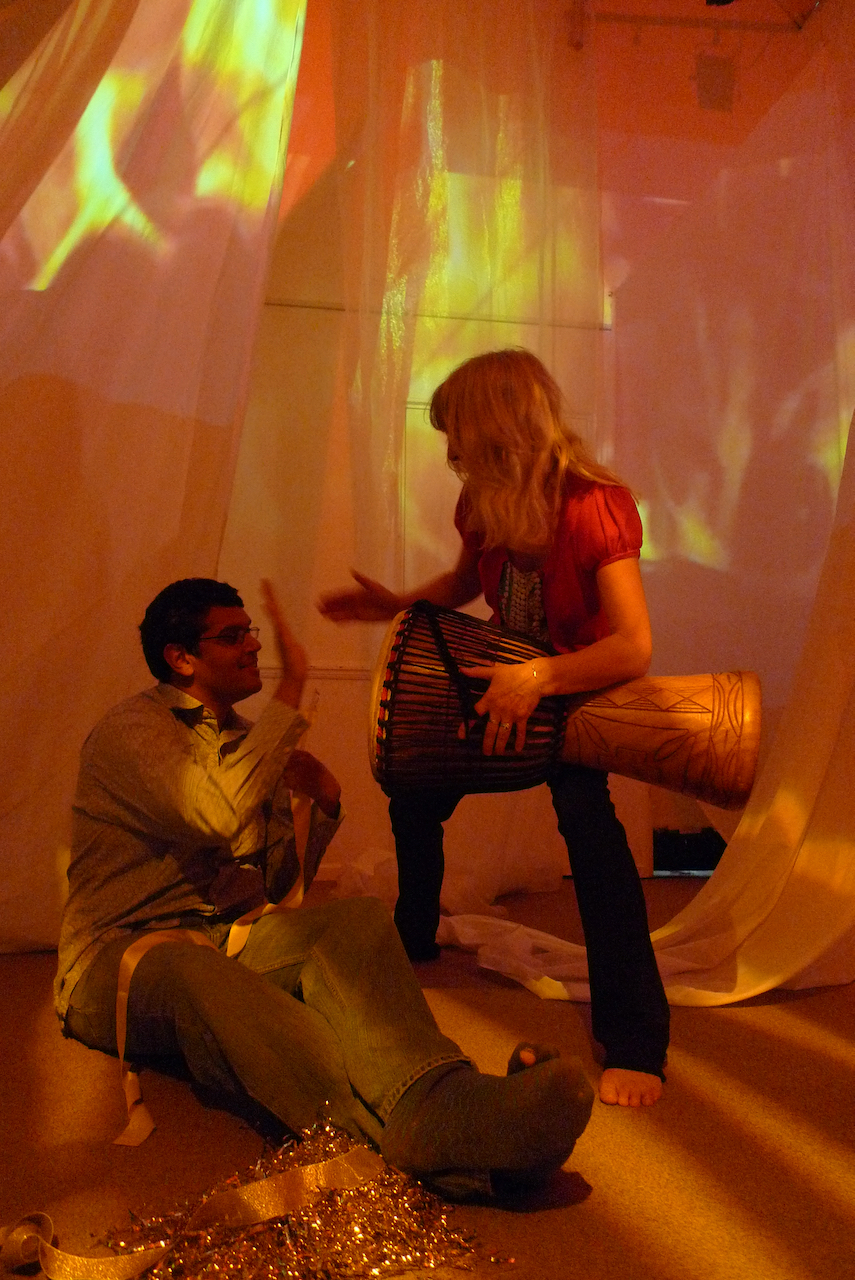
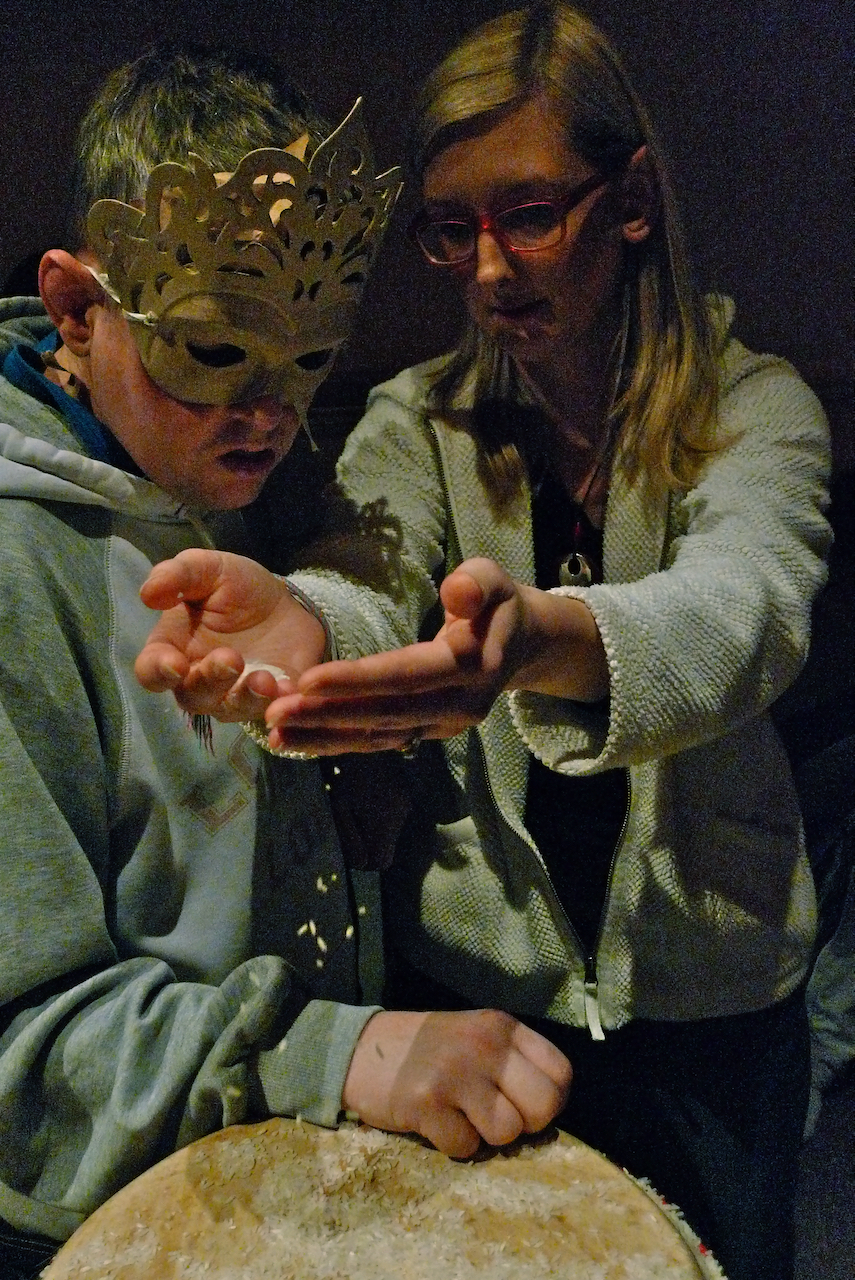
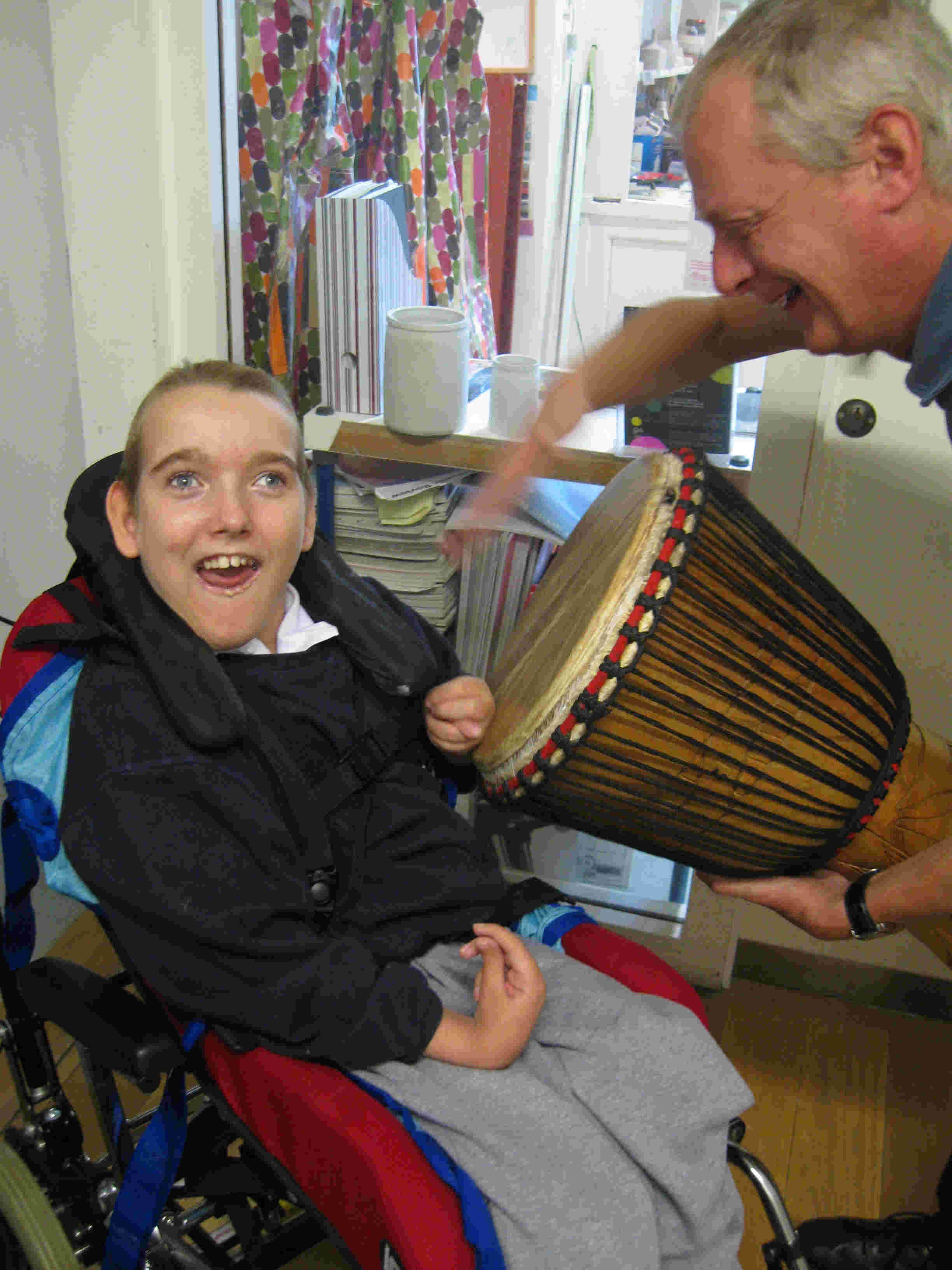
Darabuka - another useful drum which is light, mobile
and offers a range of sounds. Models with an uncovered metal body have the
advantage over those clad in vinyl in that the body has a bell like quality
when played with a beater or the hand. When played dynamically it can provide
sharp, cut-through rhythms. Calling into the open end can also enhance vocals.

Frame drums - these are an excellent resource with
multiple uses, so it is good to have several that can be simultaneously
accessed by a group. They come in different sizes.
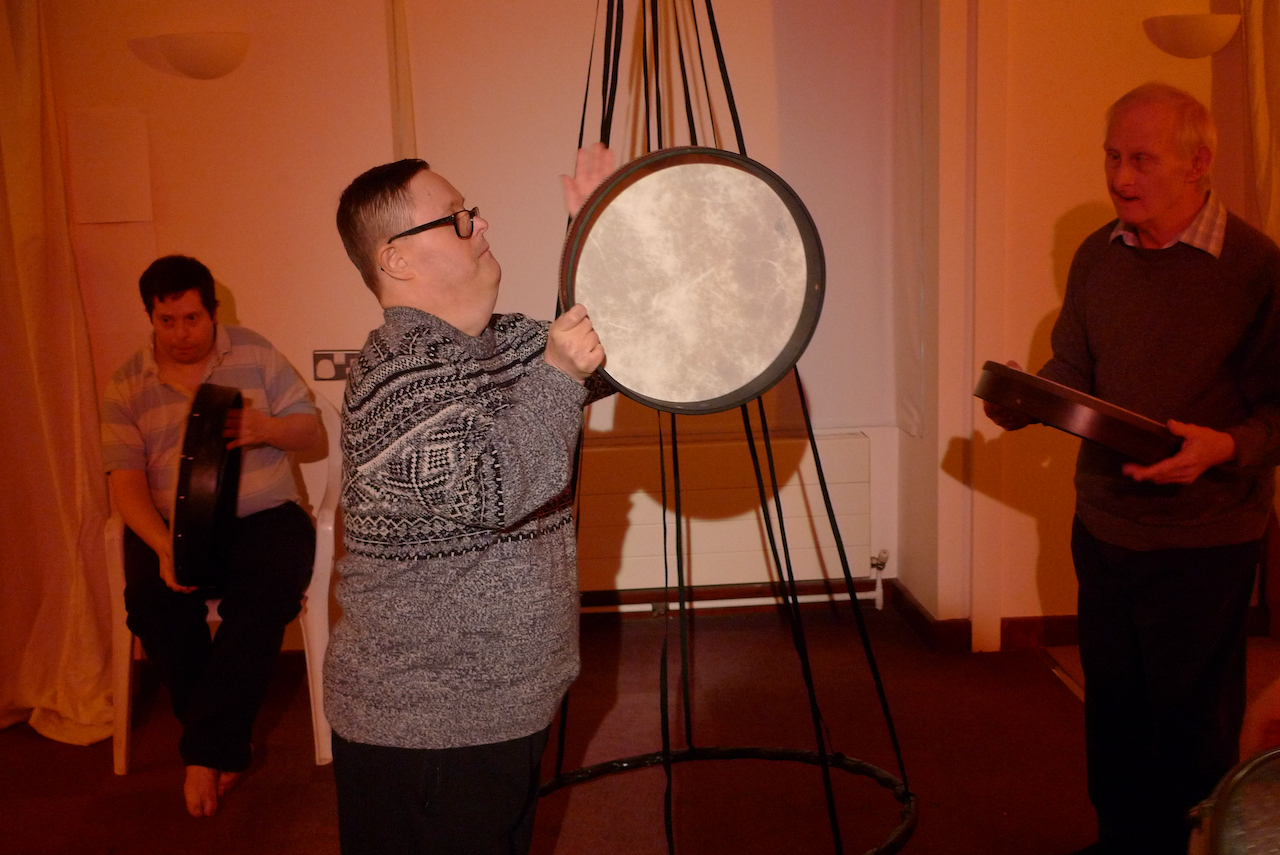
They are light and easy to hold or place on wheelchair trays and can be played with hands, feet or beaters. They will also pick up the vibrations of other sounds around them.
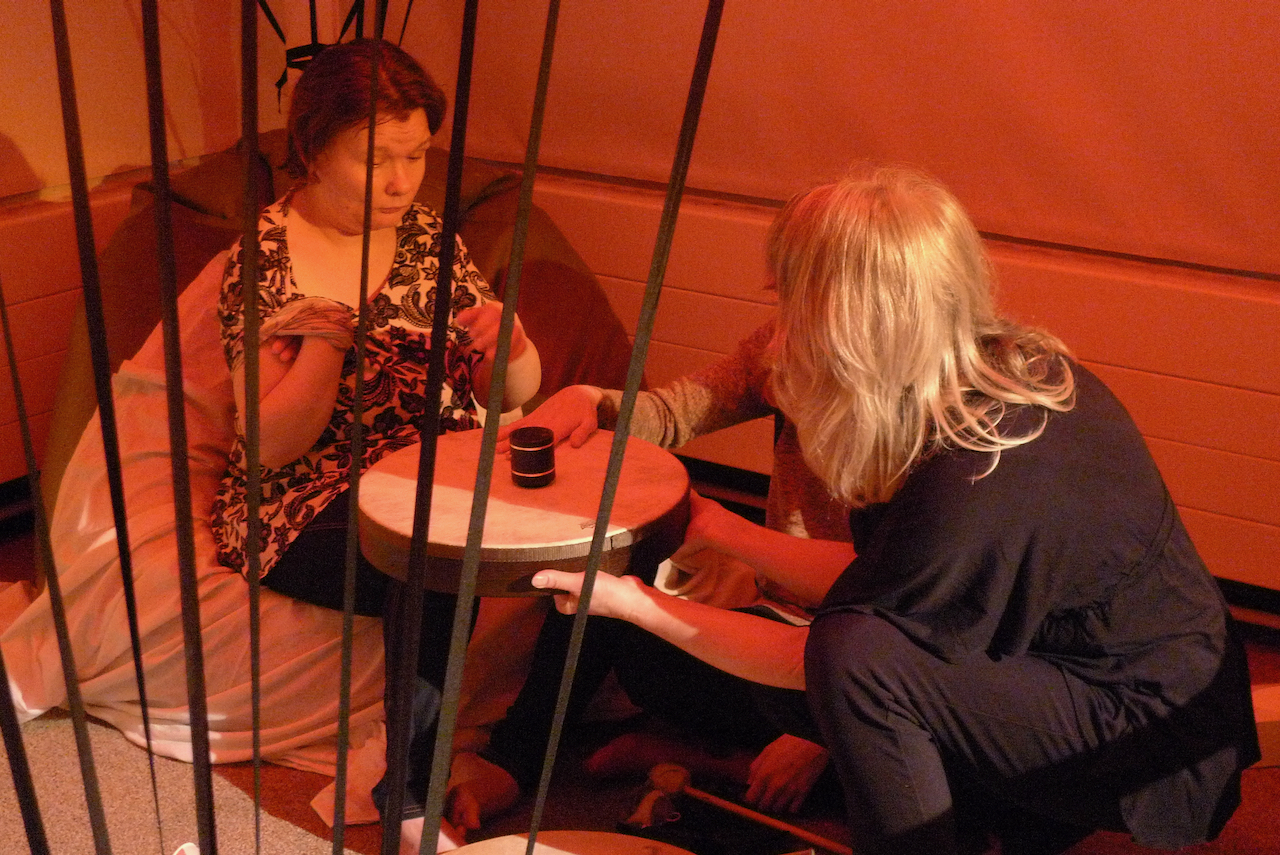
Frame drums are also useful as containers for exploring such things as rice, beans and conkers, which can be dropped into, poured and rolled around in the drums to enhance the sounds they make.
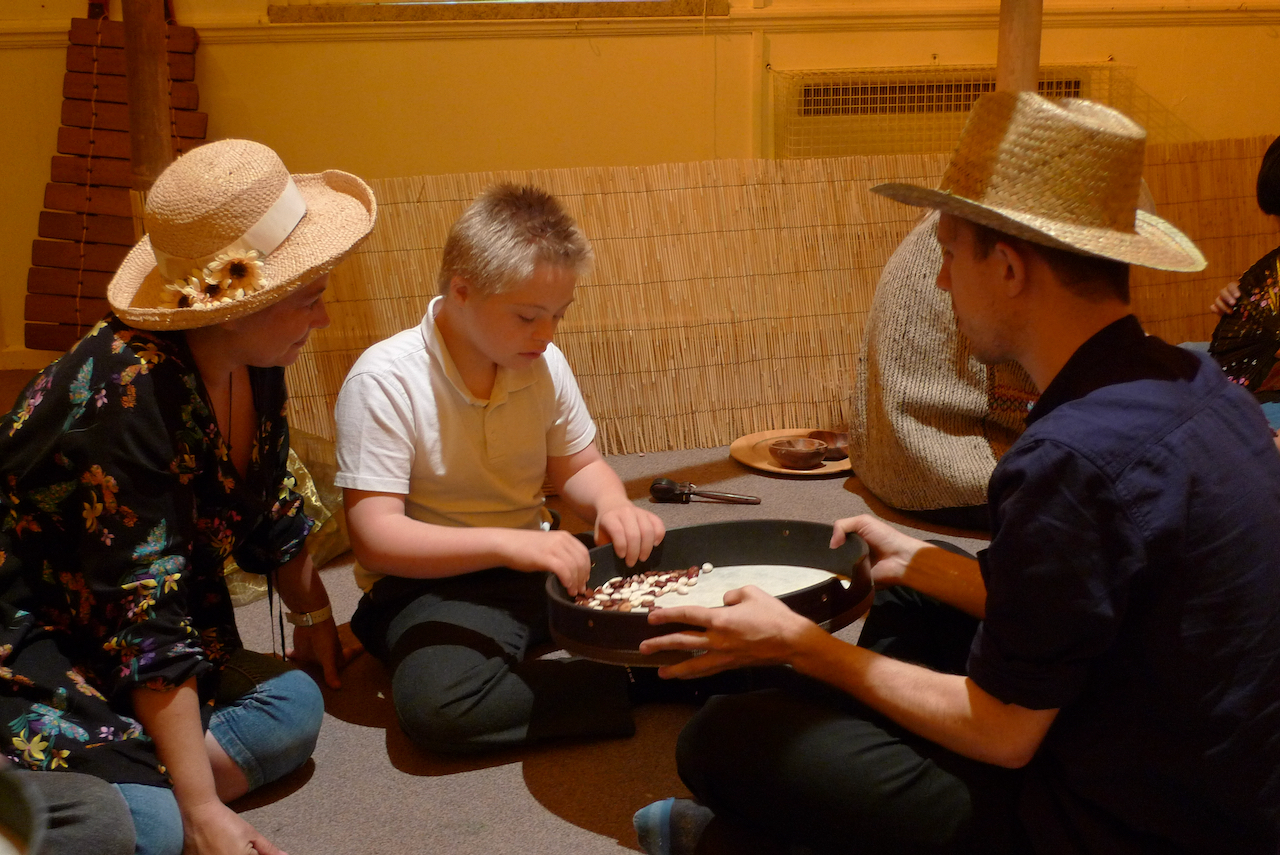
Mechanical insects were a great hit when scurrying around in these drums! Bodhrans could also be used in this way.
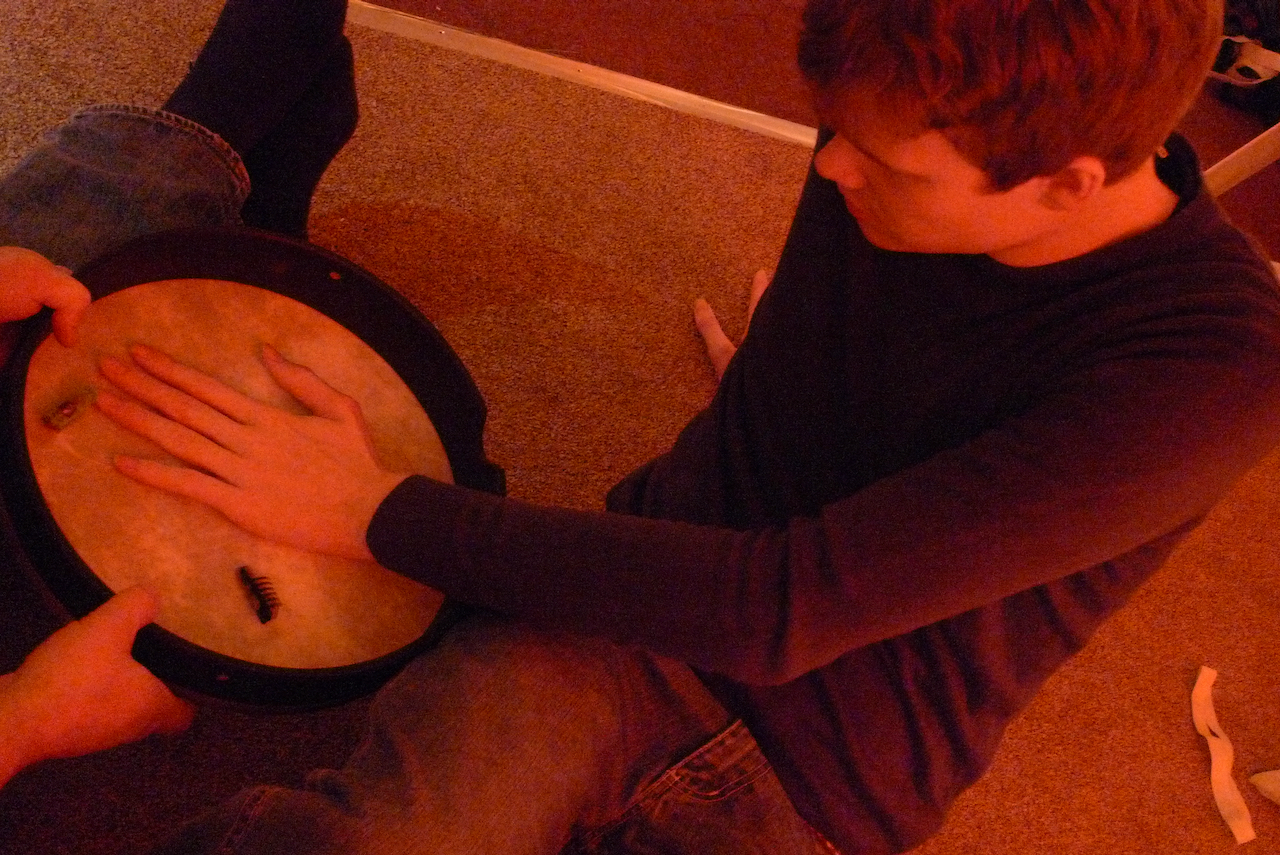
Ocean drums - an old favourite with participants, not only
do they create the whooshing sound of the sea, but the movement of the 'balls'
can be seen as well as felt and are fascinating to watch. They can also be
played as drums or shaken to create rhythms. Beware, they can be very loud!
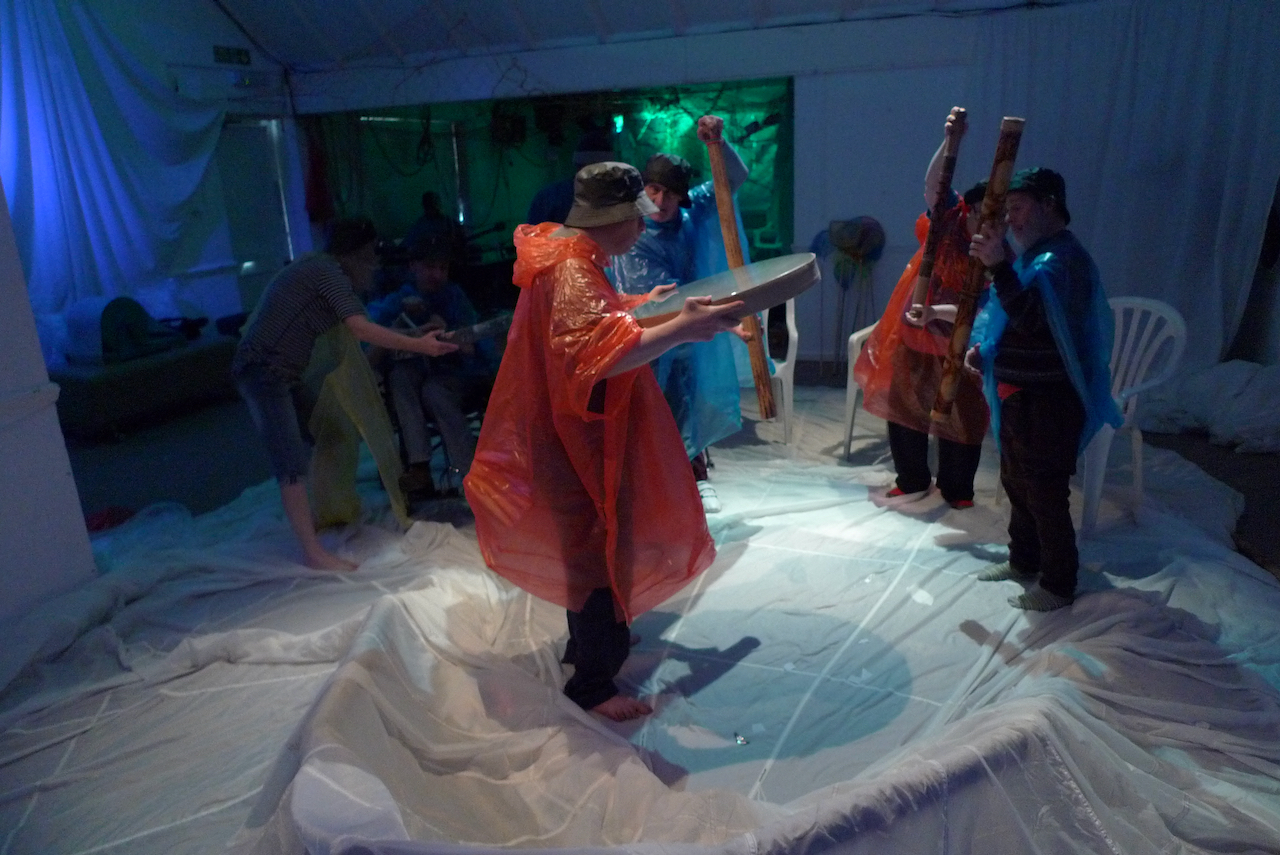
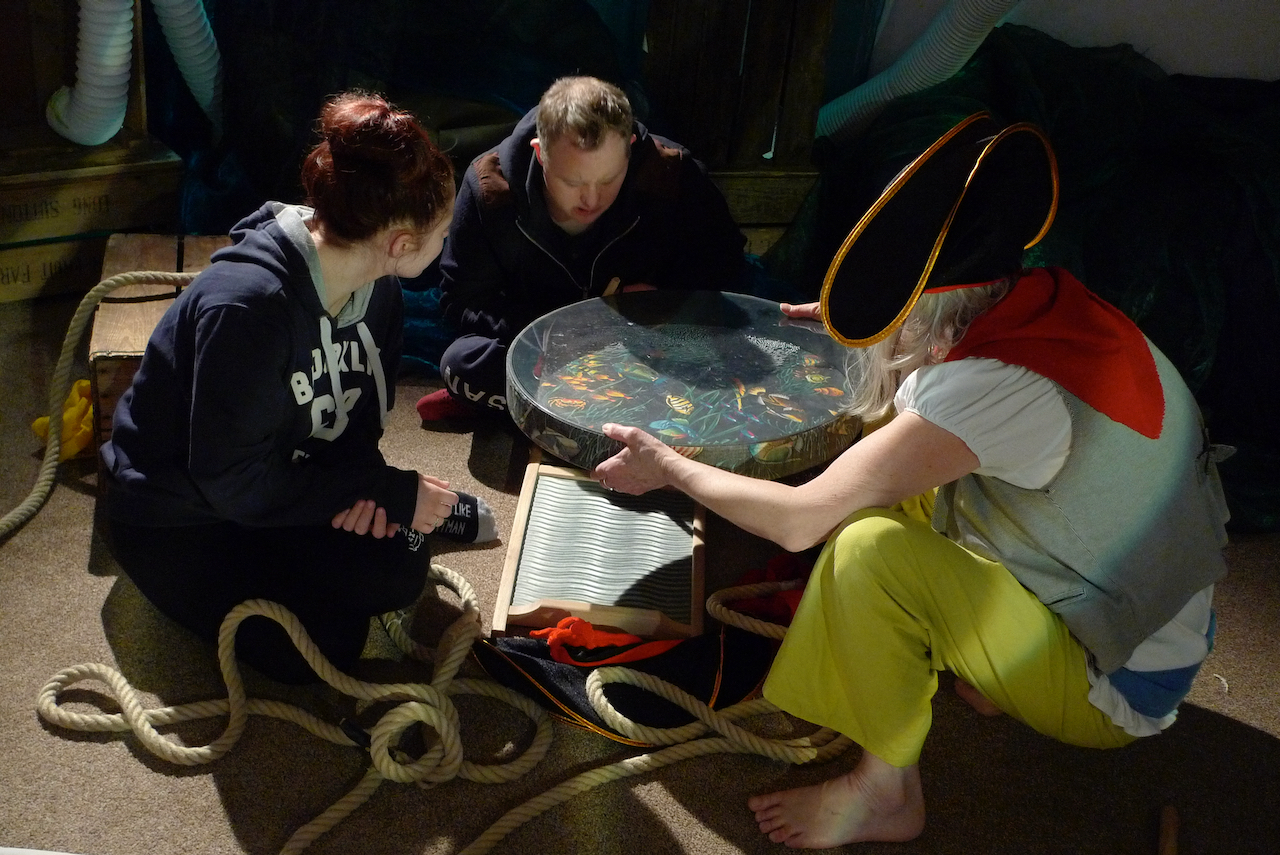
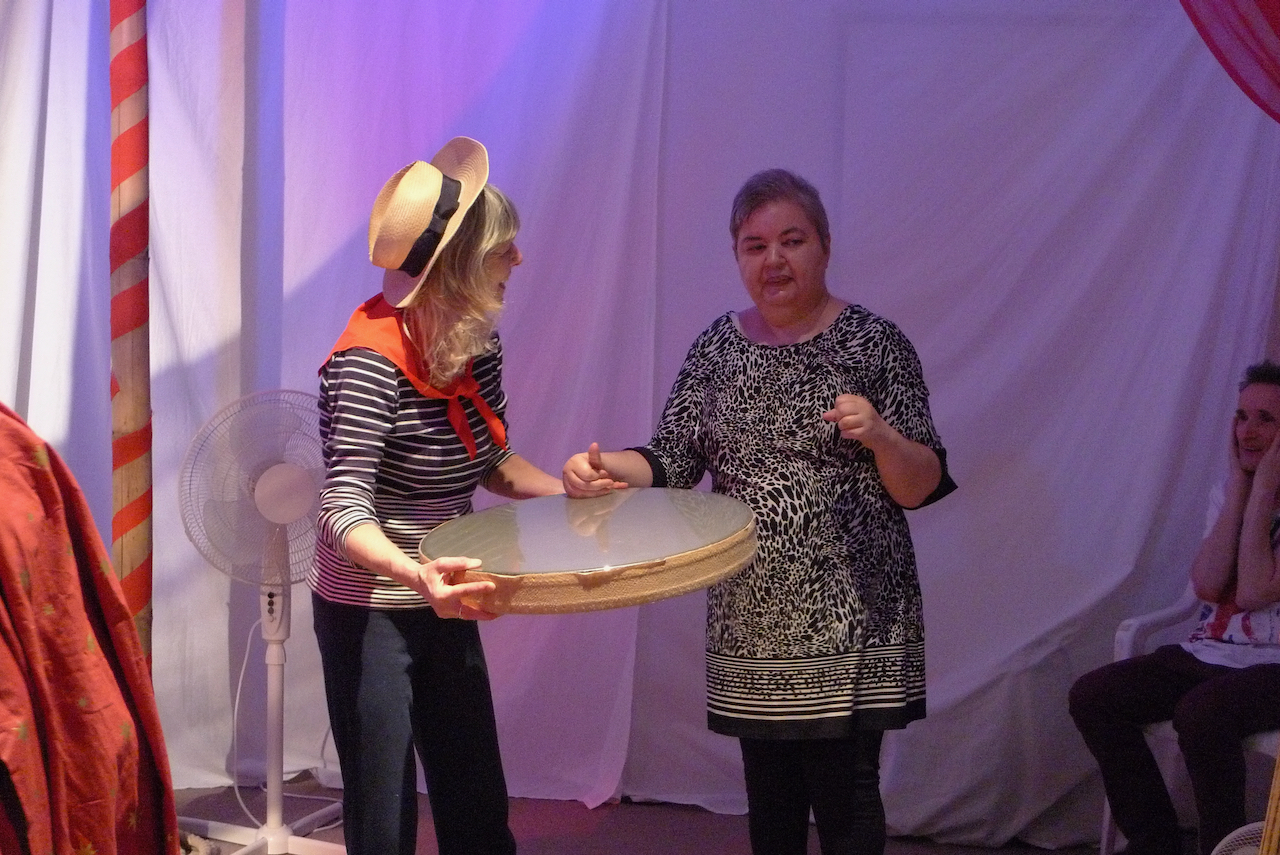
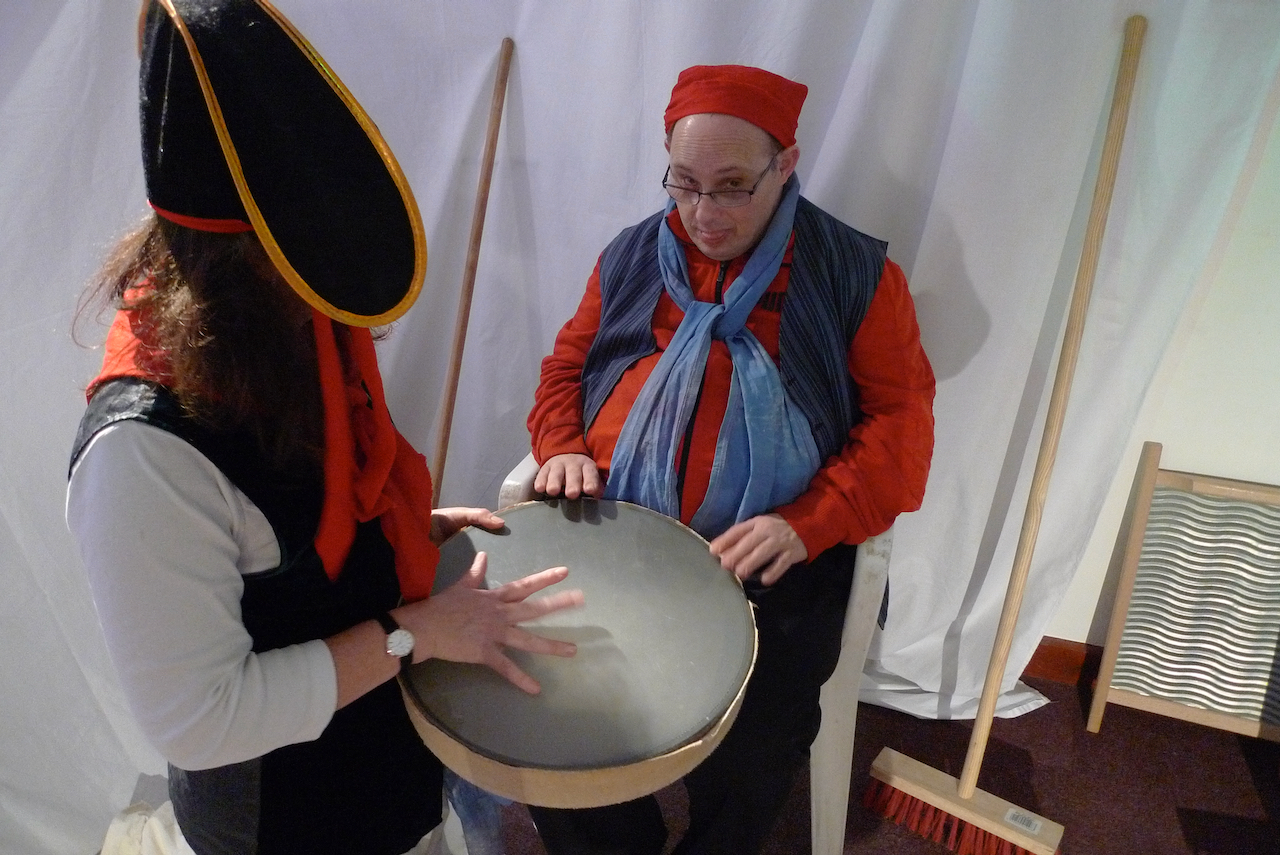
Gathering drum - a large flat drum that can be played by
several people at the same time as a group activity. This can be ritualistic,
or to encourage turn-taking, listening and call and answer. Placing balls, rice
or other onto the drum can show the energy involved i.e. tapping gently with
fingers makes objects vibrate, playing harder makes the balls bounce into the
air. You can even play it with your feet.

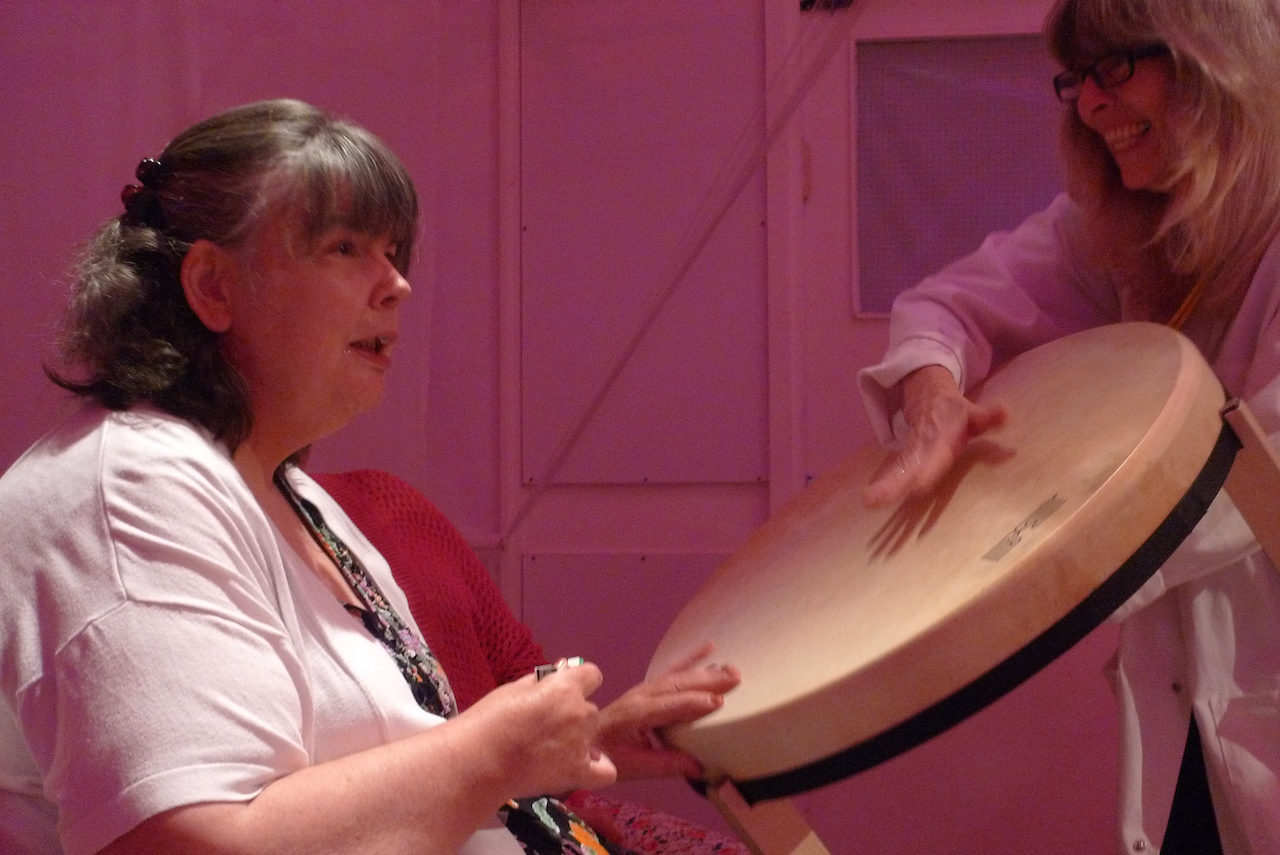
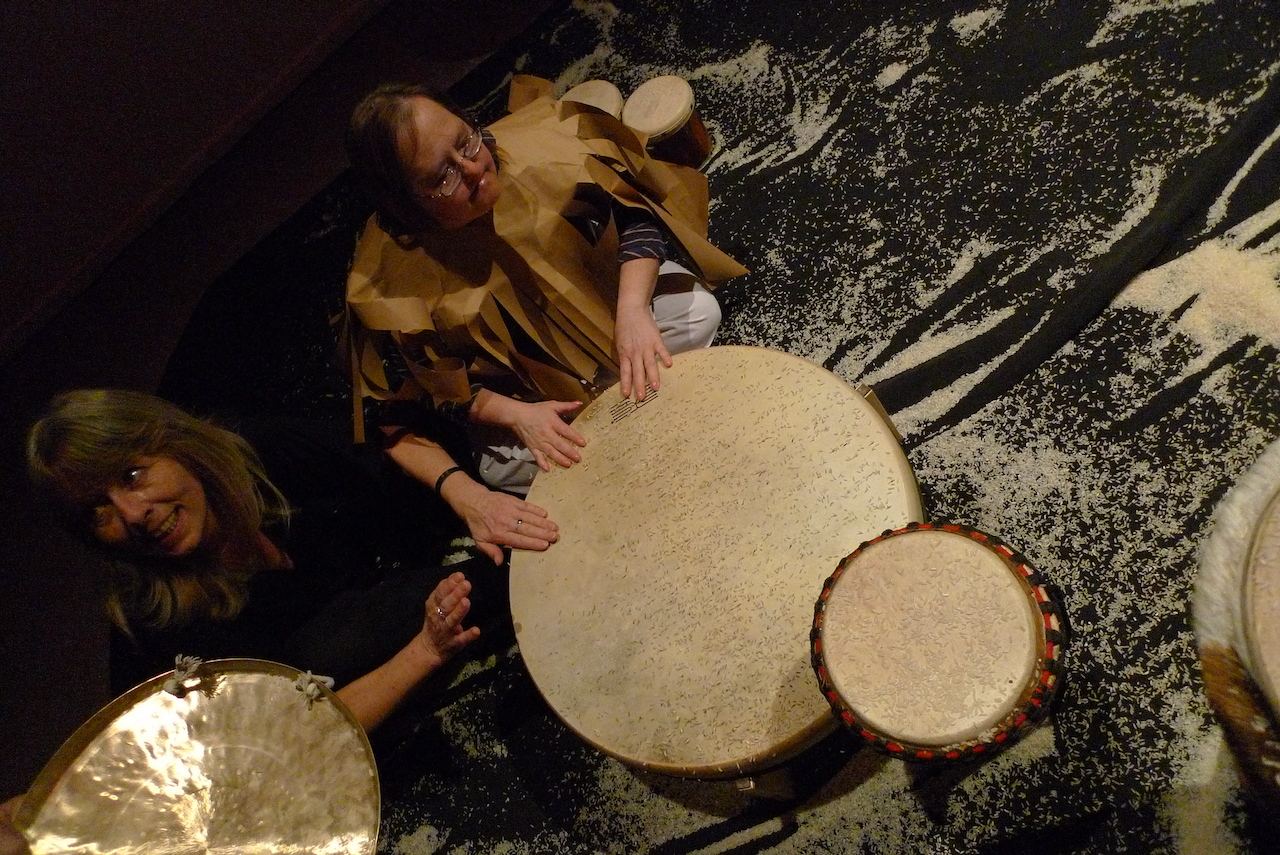
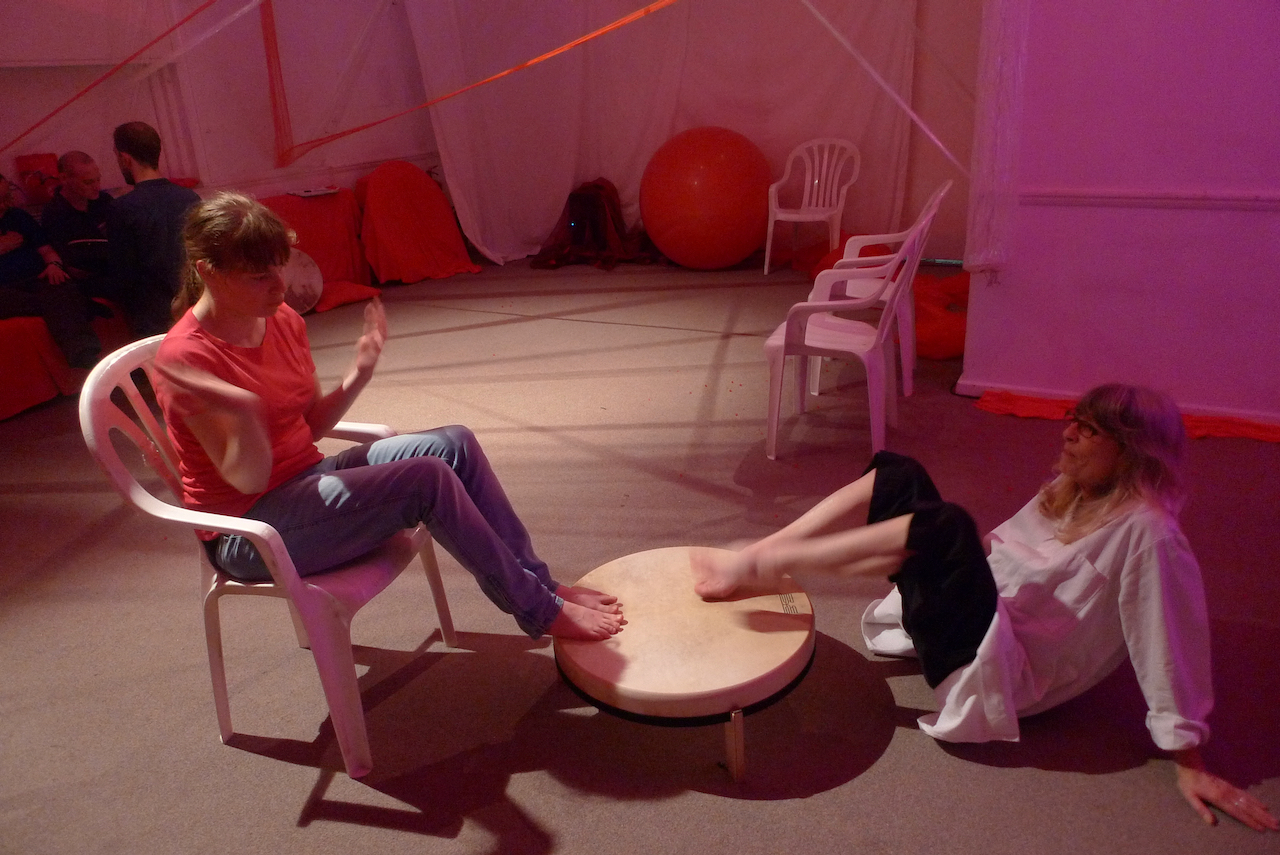
Timpani - big and bold, they can be accessed by
several participants at a time. Played with soft beaters, they can create a
gentle rumble of thunder, with harder beaters a volcanic eruption or a rhythmic
beat. For people who find movement difficult they can create a big sound with
very little movement. We have often been surprised by the amount of pleasure
making a big noise gives to a wheelchair user who normally has little
opportunity to do this!

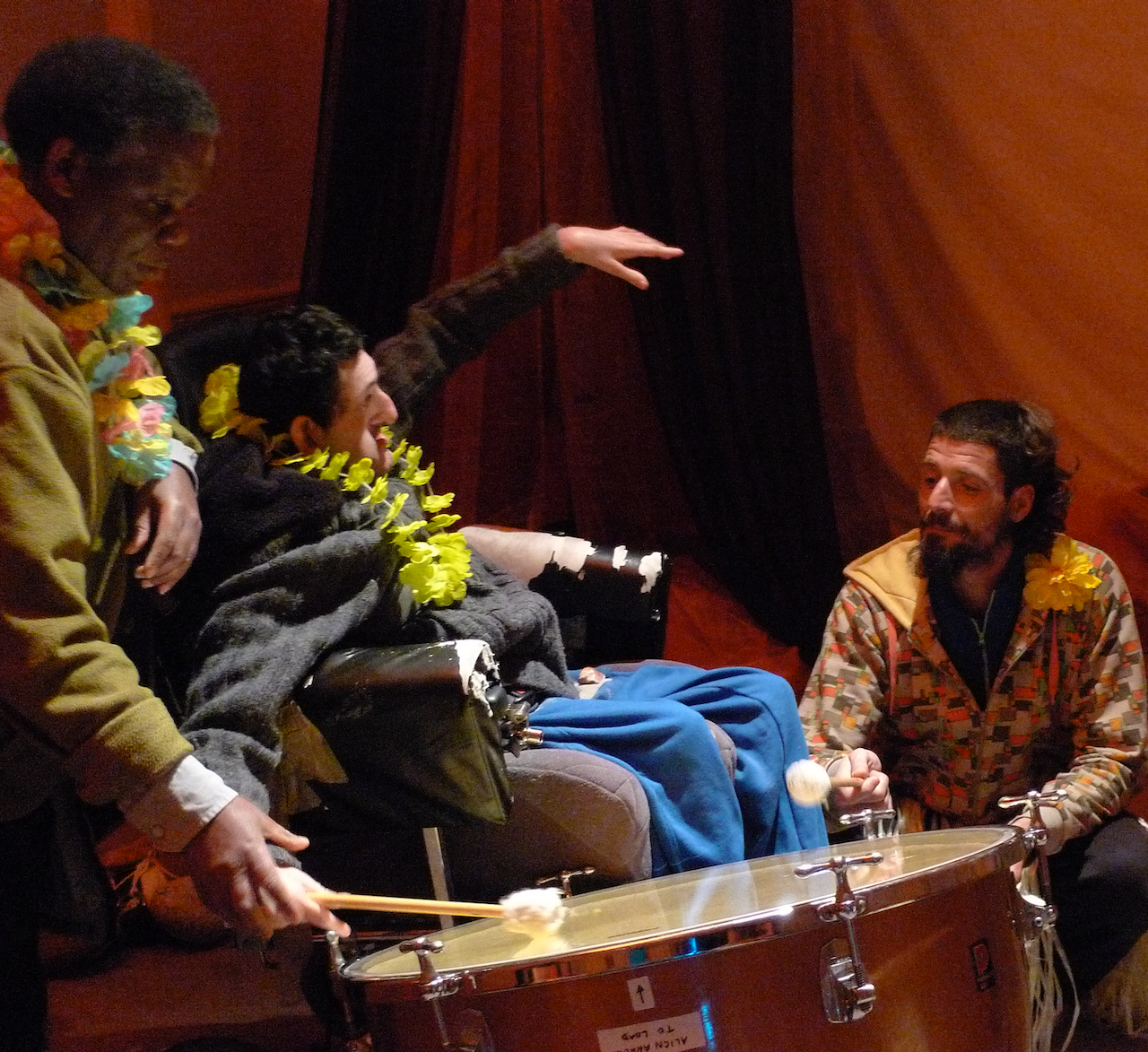
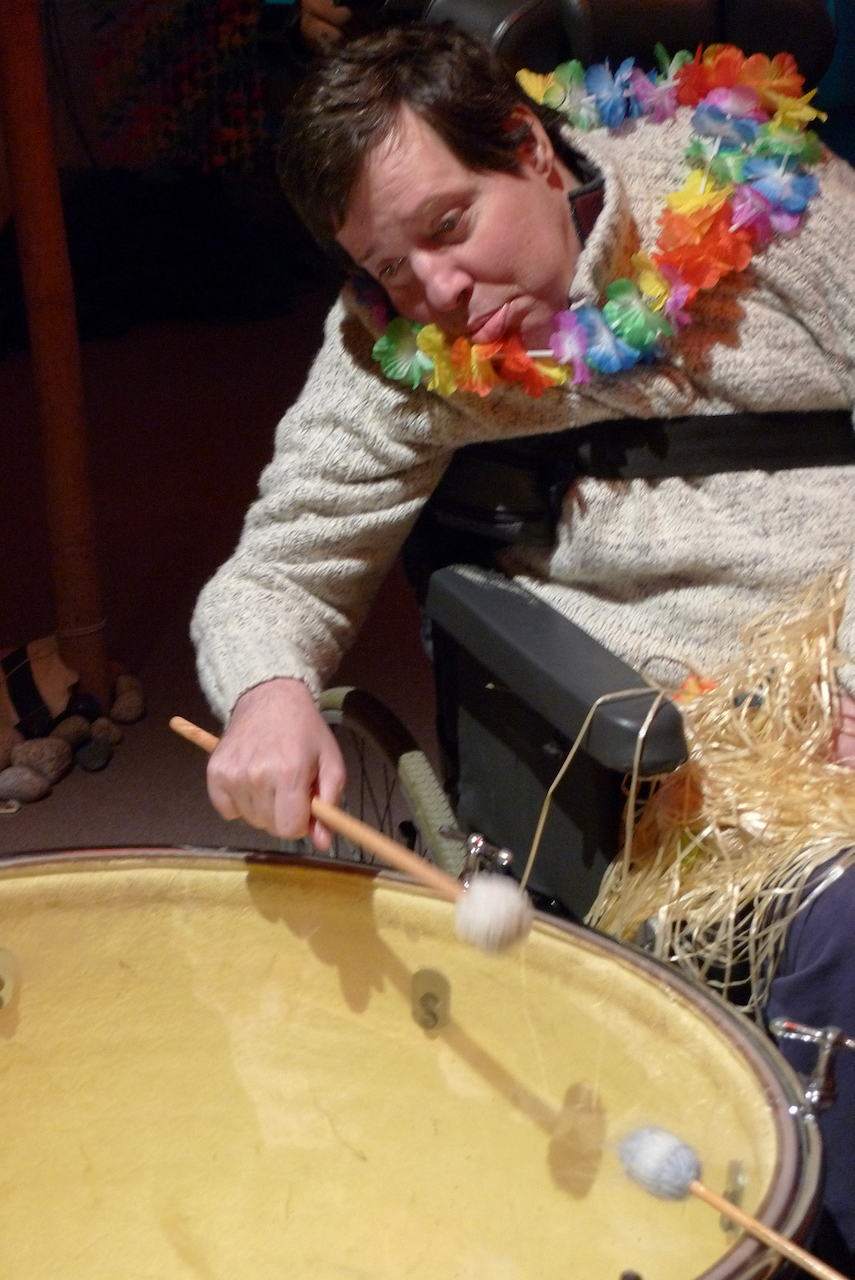
Cajon - the drum you can sit on! It has a bright
tonal quality with a variety of different sounds available, depending on where
you hit/kick it. It also comes in a 'slap-top' version that may be easier for
some people to play.
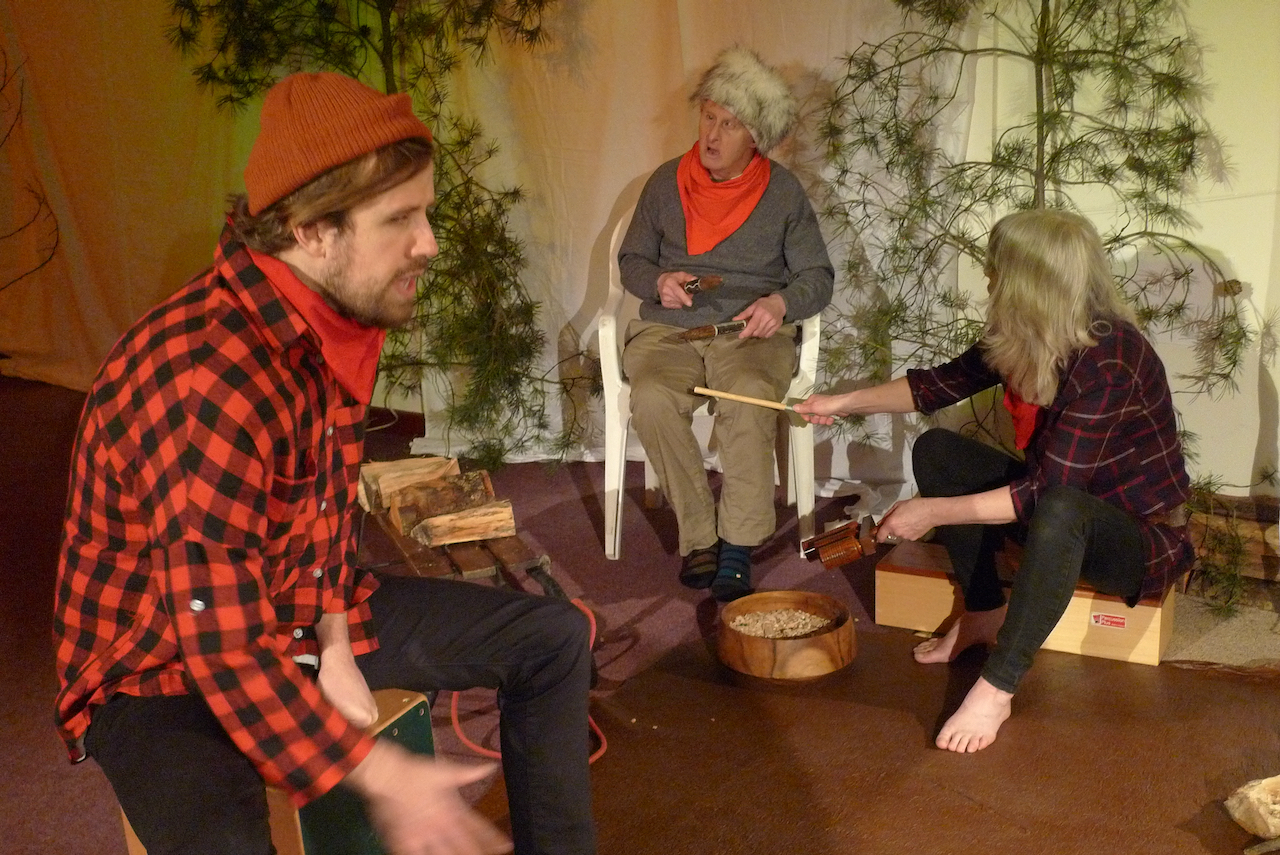
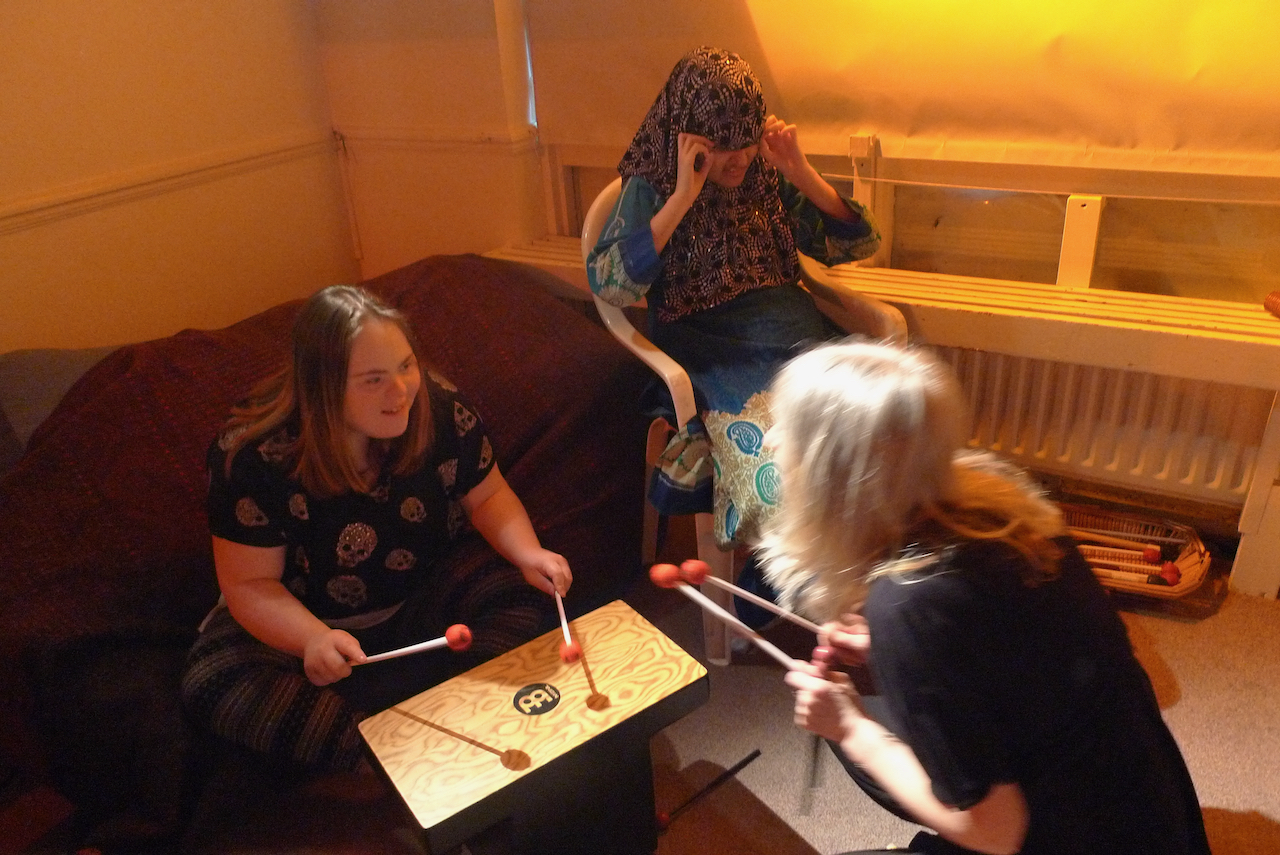
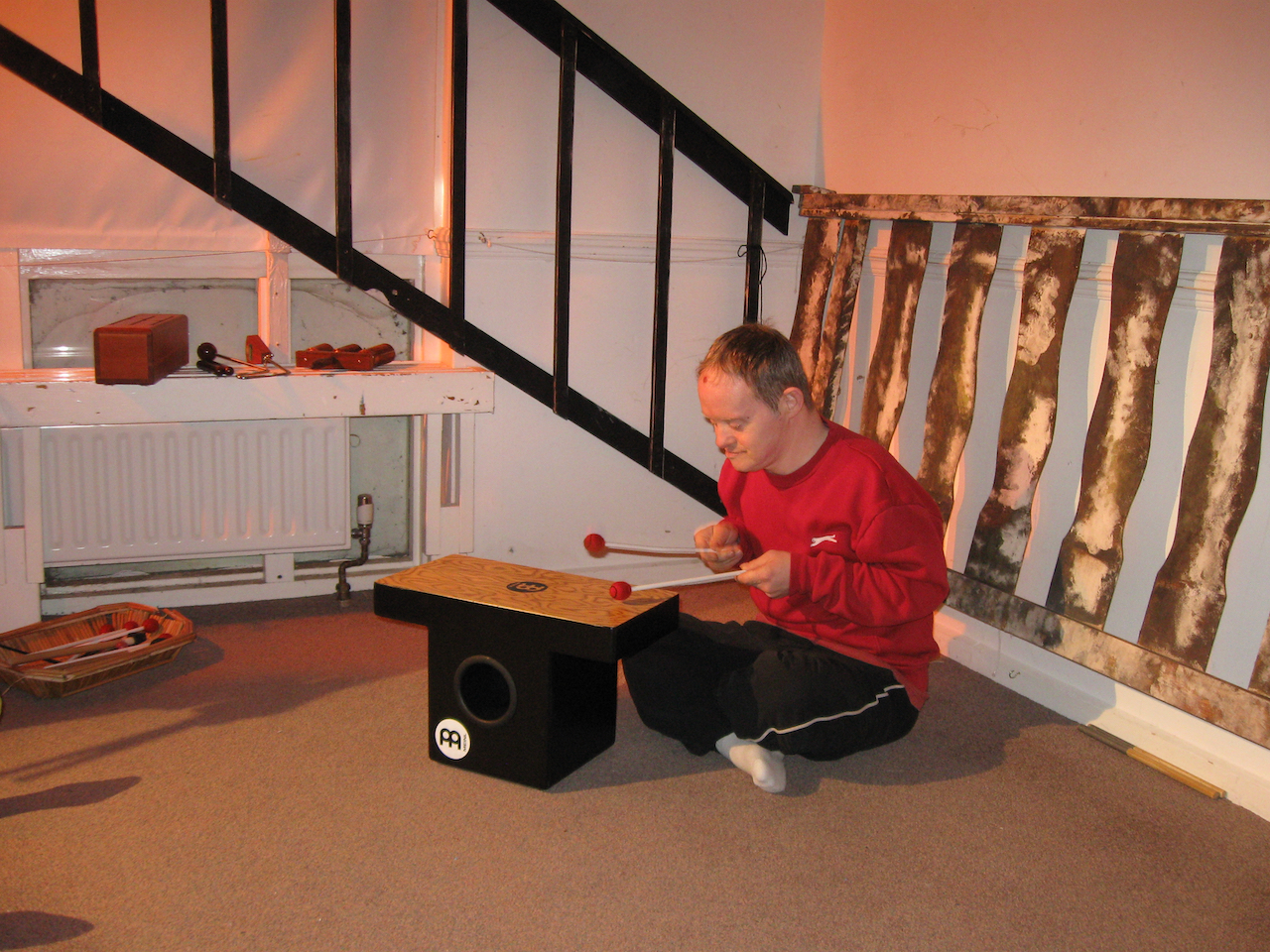
Congas - often bought in sets of three as can be
tuned to complement each other. These are useful for those who prefer to
stand/sit and play without the encumbrance of holding the drum as well.
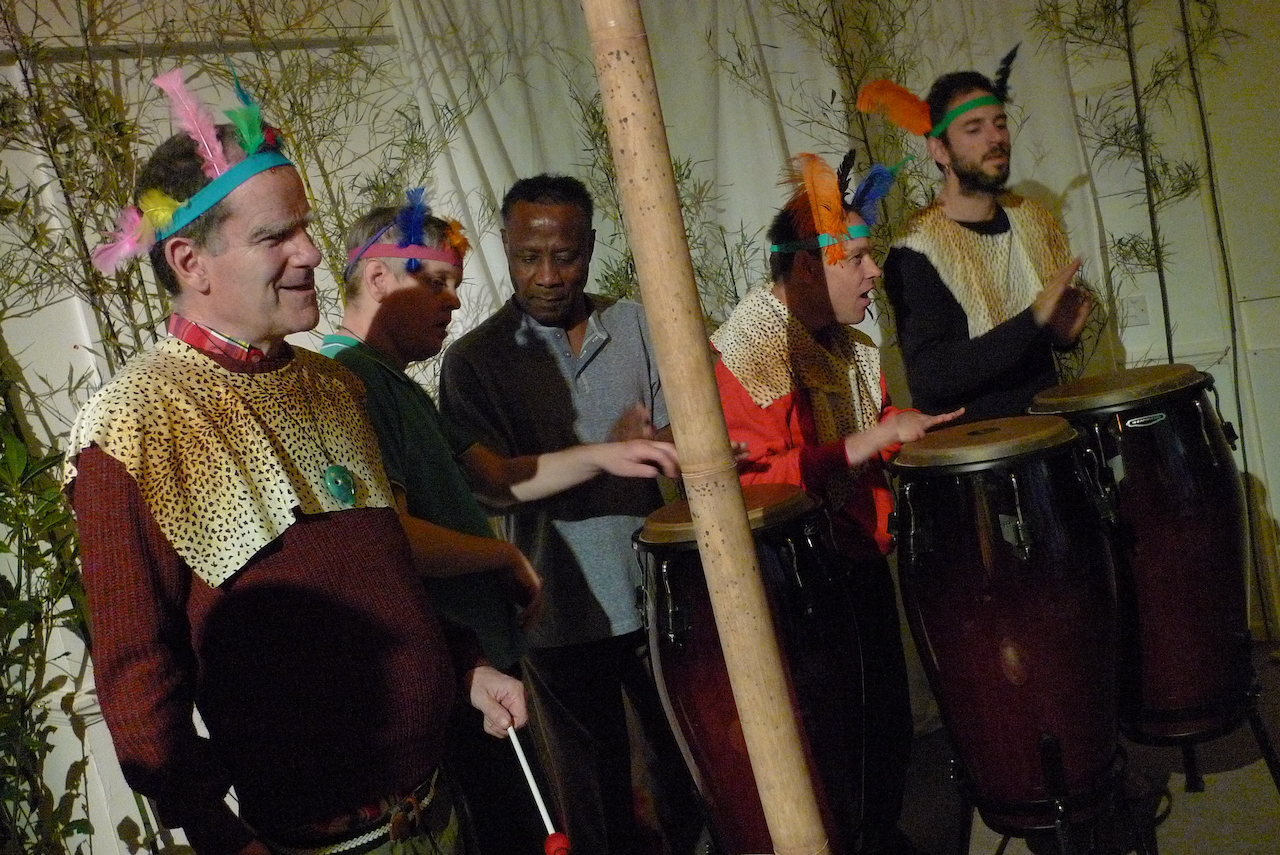
Tongue drum - these have a playing surface with ‘tongues’
cut from a single piece of wood. They are tuned and respond best to softish
beaters of rubber or cloth. They are excellent for creating tuned rhythms and
come in different sizes which, if chosen carefully, complement each other. They
are particularly useful for holding a rhythm underneath a variety of other wood
sounds and can be held, played on the floor or on laps/trays.
They are also
good for pouring conkers over!
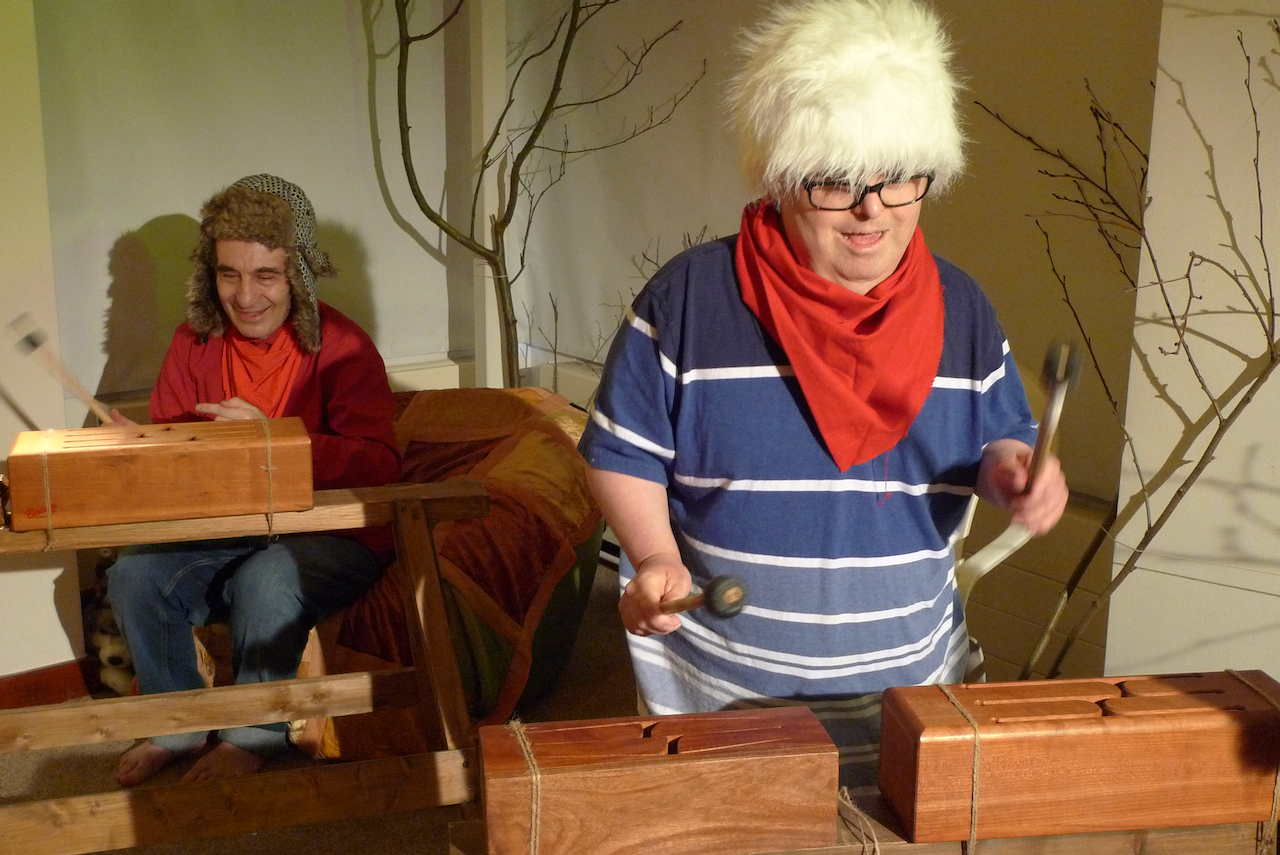
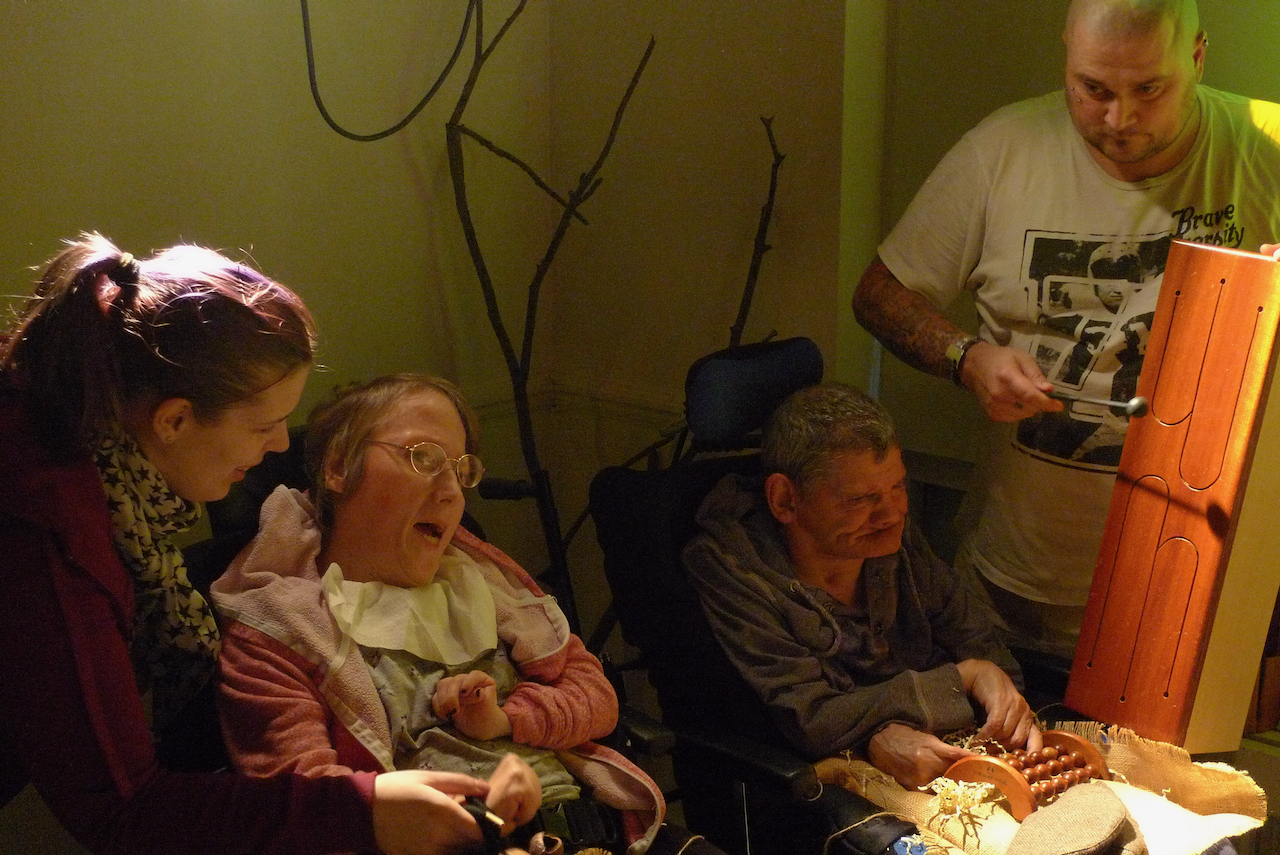
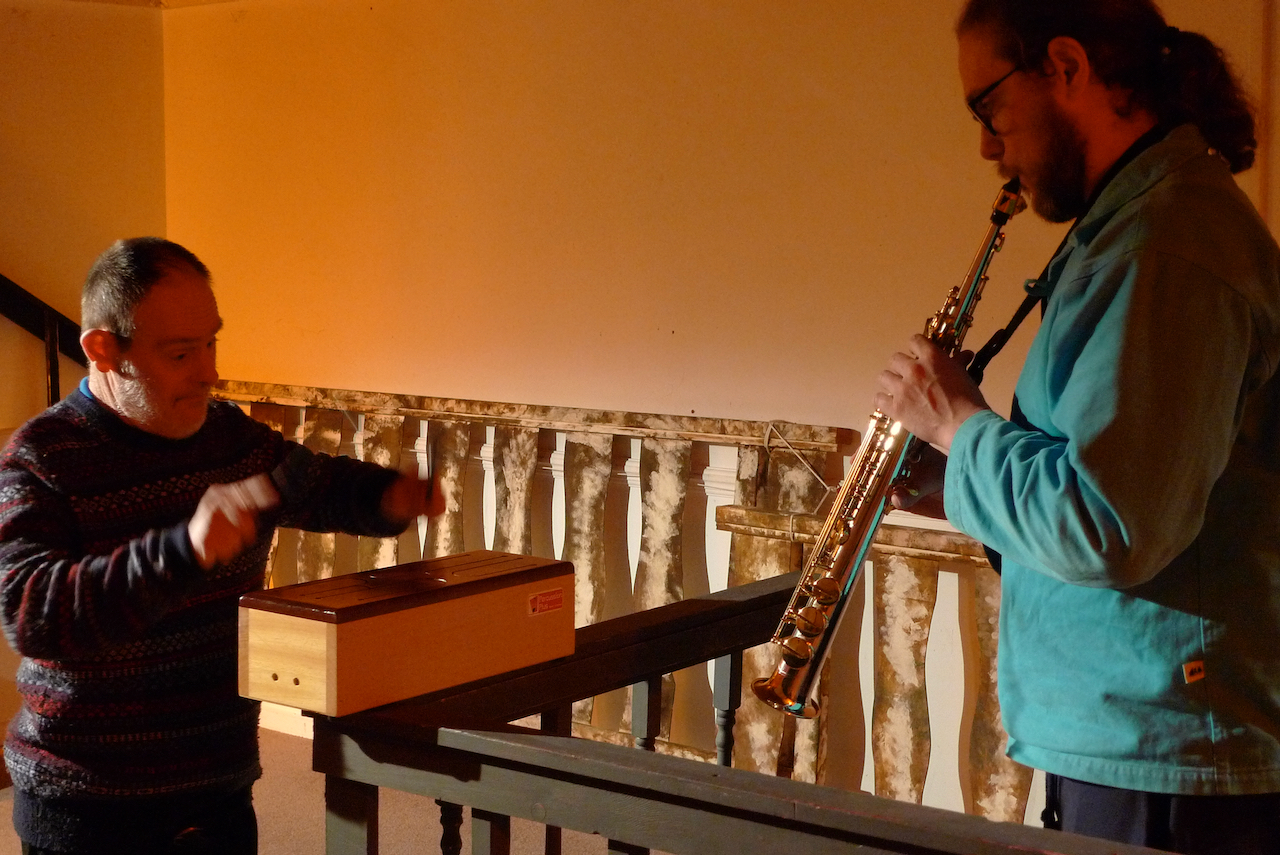
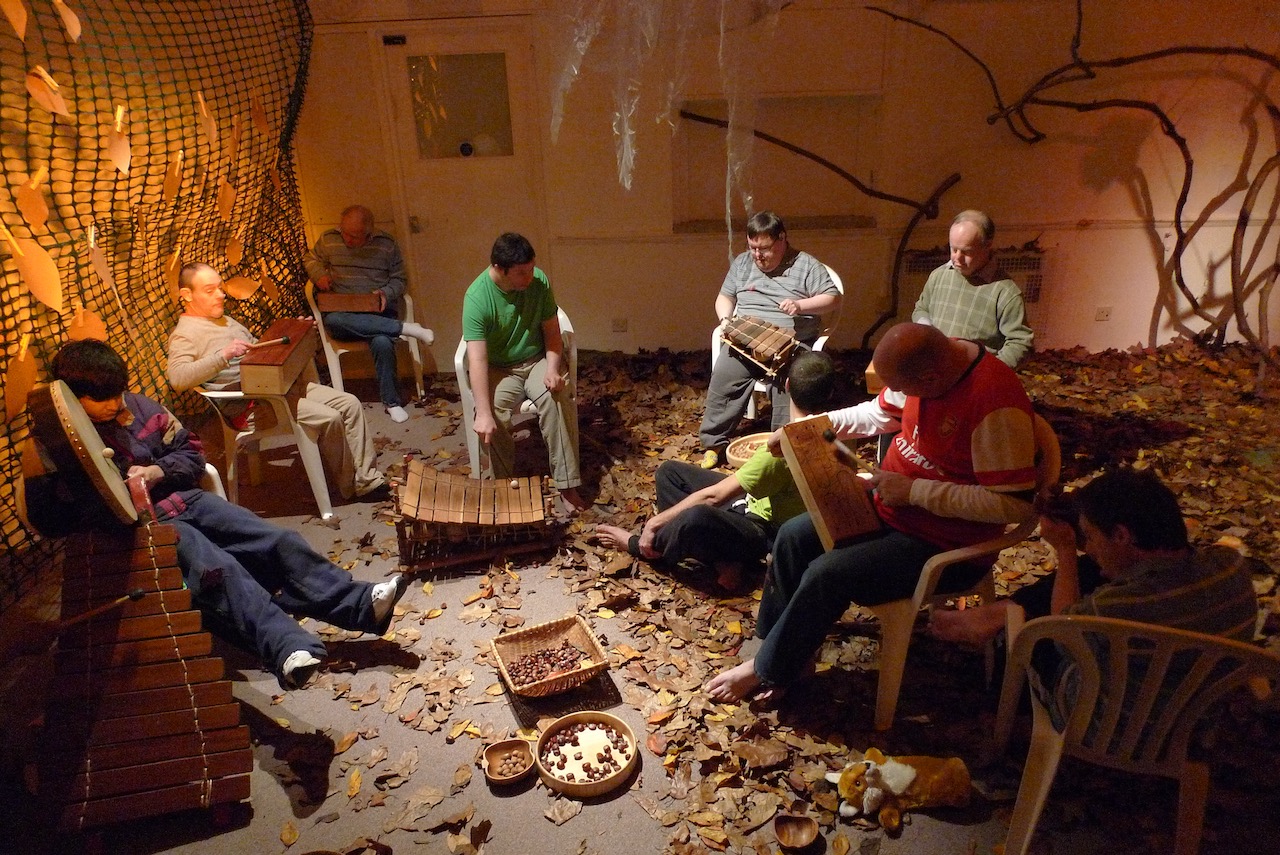
Tank drum - for soft, tuned, metallic sounds, this
instrument is amazing. Played with fingers or soft beaters, it can create
tuneful rhythms that resonate around the space and when played with carefully
chosen handchimes creates a beautiful, melodic soundscape. Many clients enjoy feeling the vibrations while someone else is playing, tho' this does 'damp' the sound.
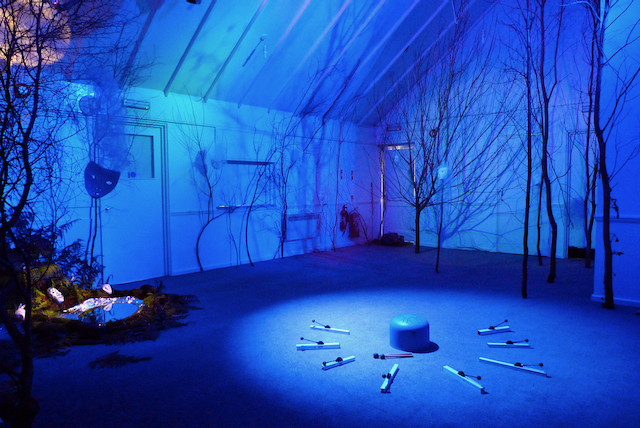
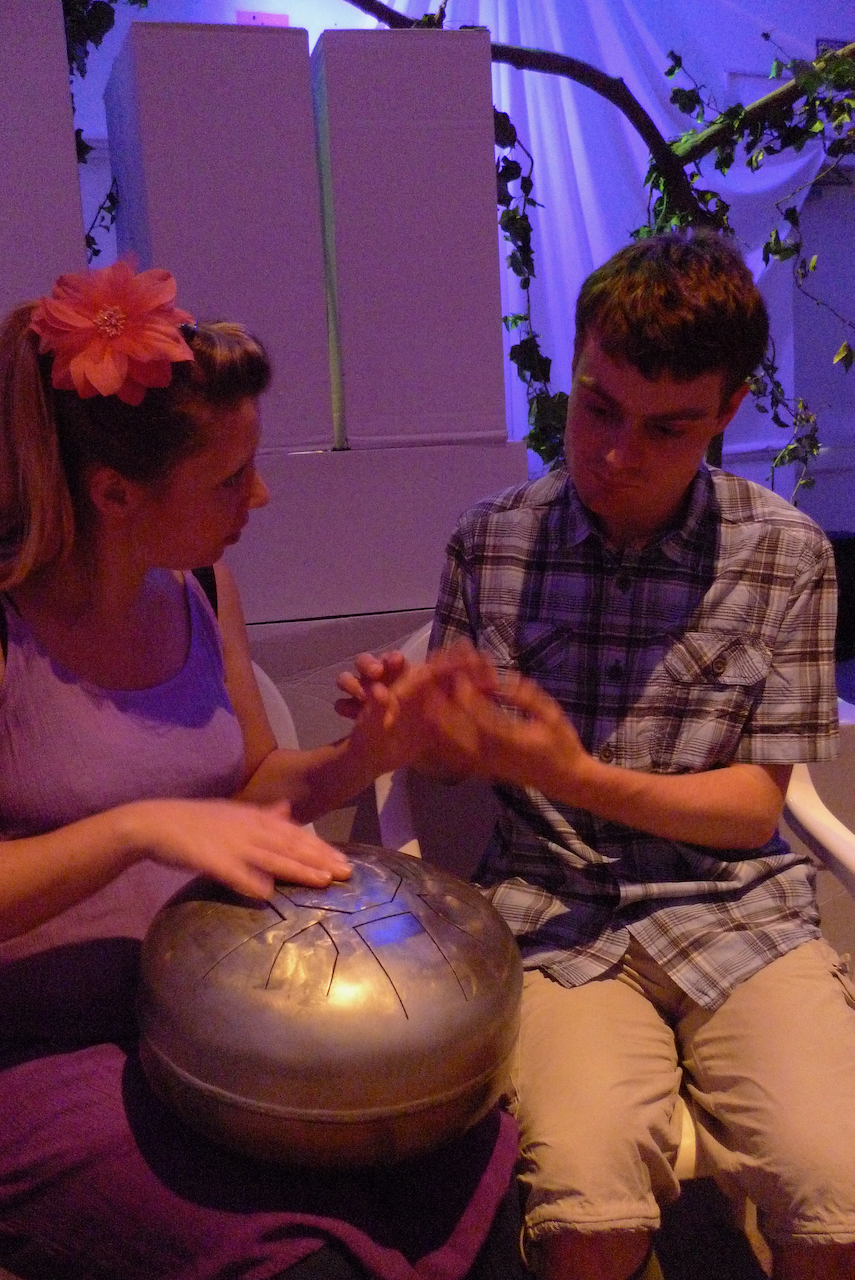
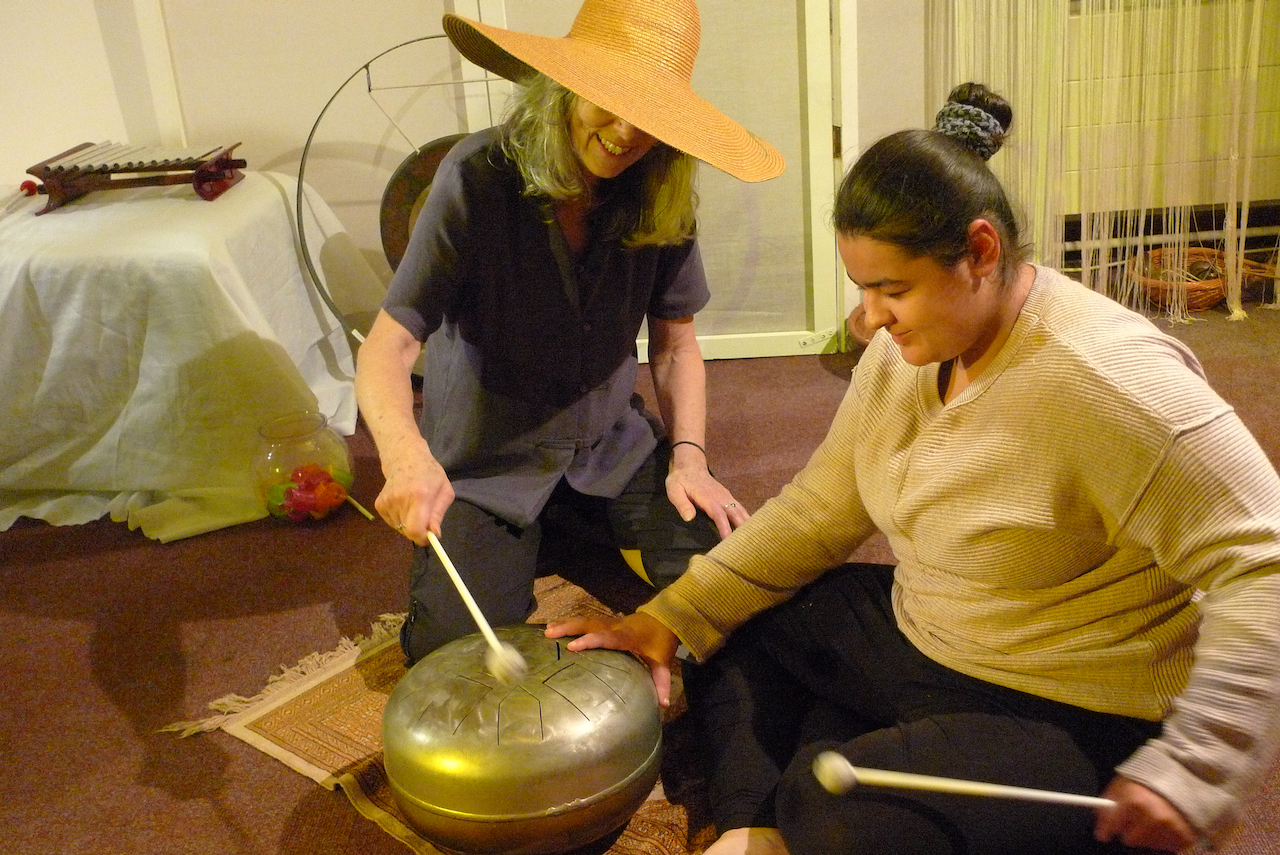
The above are instruments that can be accessed
by everyone. For budding musicians, there are more difficult drums to play;
steel pan, tablas, udu drum, talking drum, marching drum, the list goes on...
